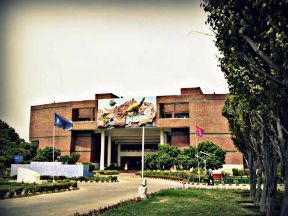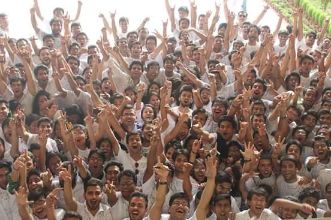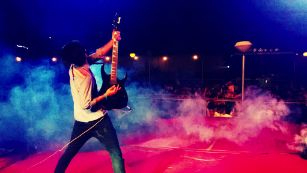|
Name
|
Description
|
|
Workshop Design Laboratory
|
Location: 4220
This lab is primarily a teaching lab.
The Electronics Workshop Design Lab, located in Room 4220 of the Electronics and Communication Engineering (ECE) Department at Netaji Subhas University of Technology (NSUT) Delhi, is a dynamic and exciting resource for students, faculty, and researchers to explore and experience the potential of electronics. The lab provides a safe and secure environment for the development and optimization of circuit designs and the implementation of prototypes.
The lab also provides practical opportunities for students to develop and refine their skills in circuit design and implementation, as well as to gain experience in the use of the various tools and instruments available in the lab.
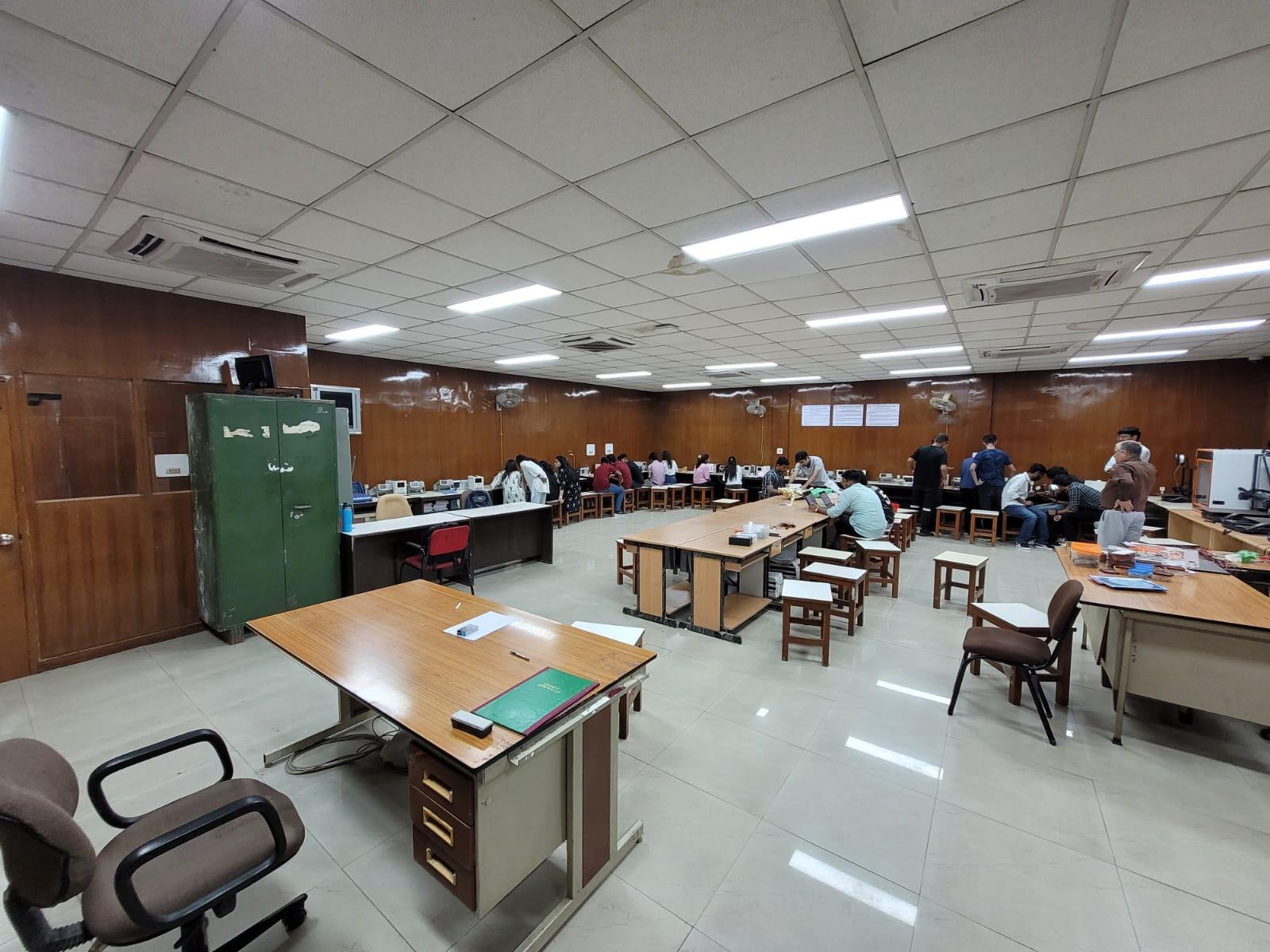 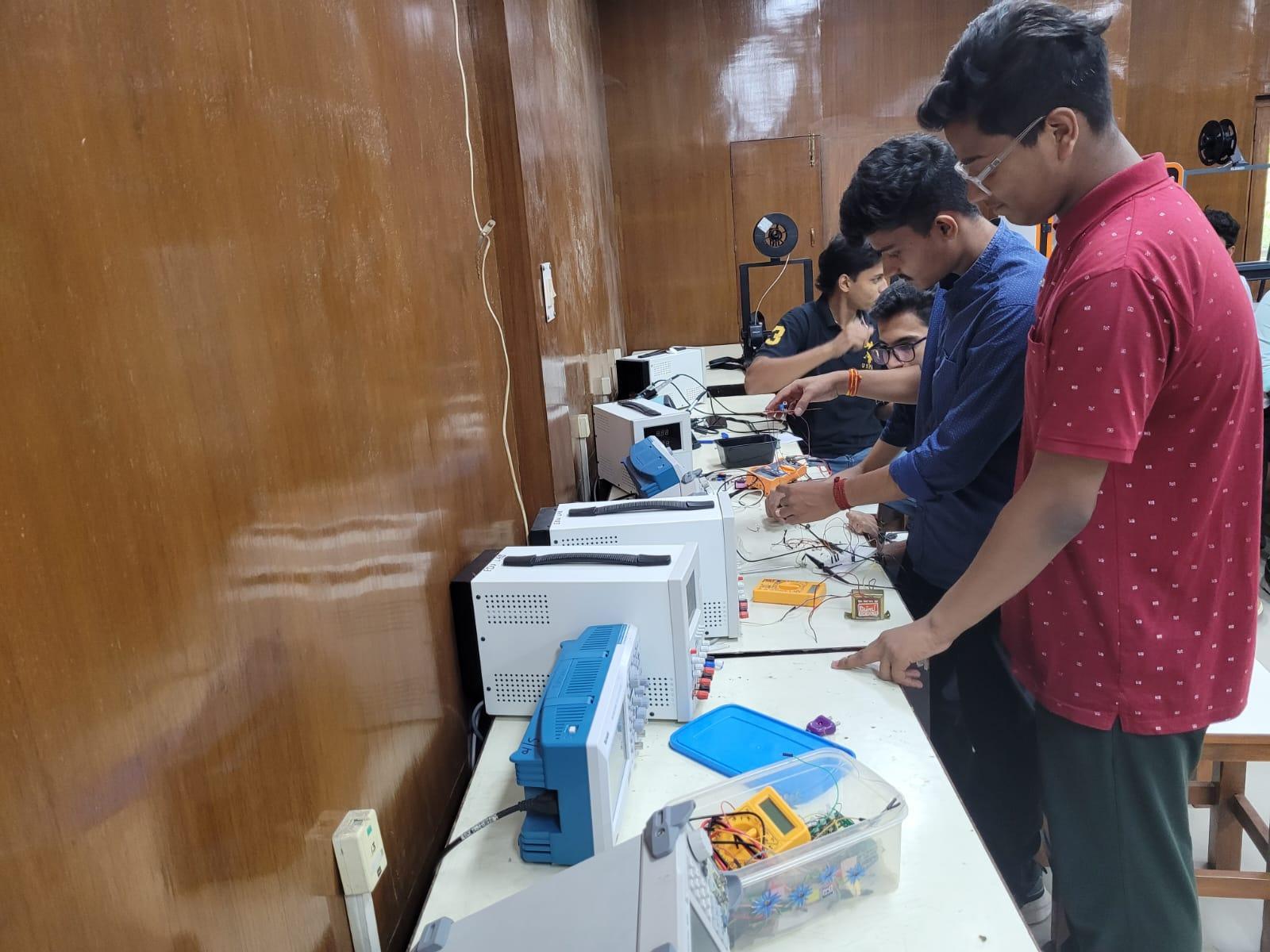
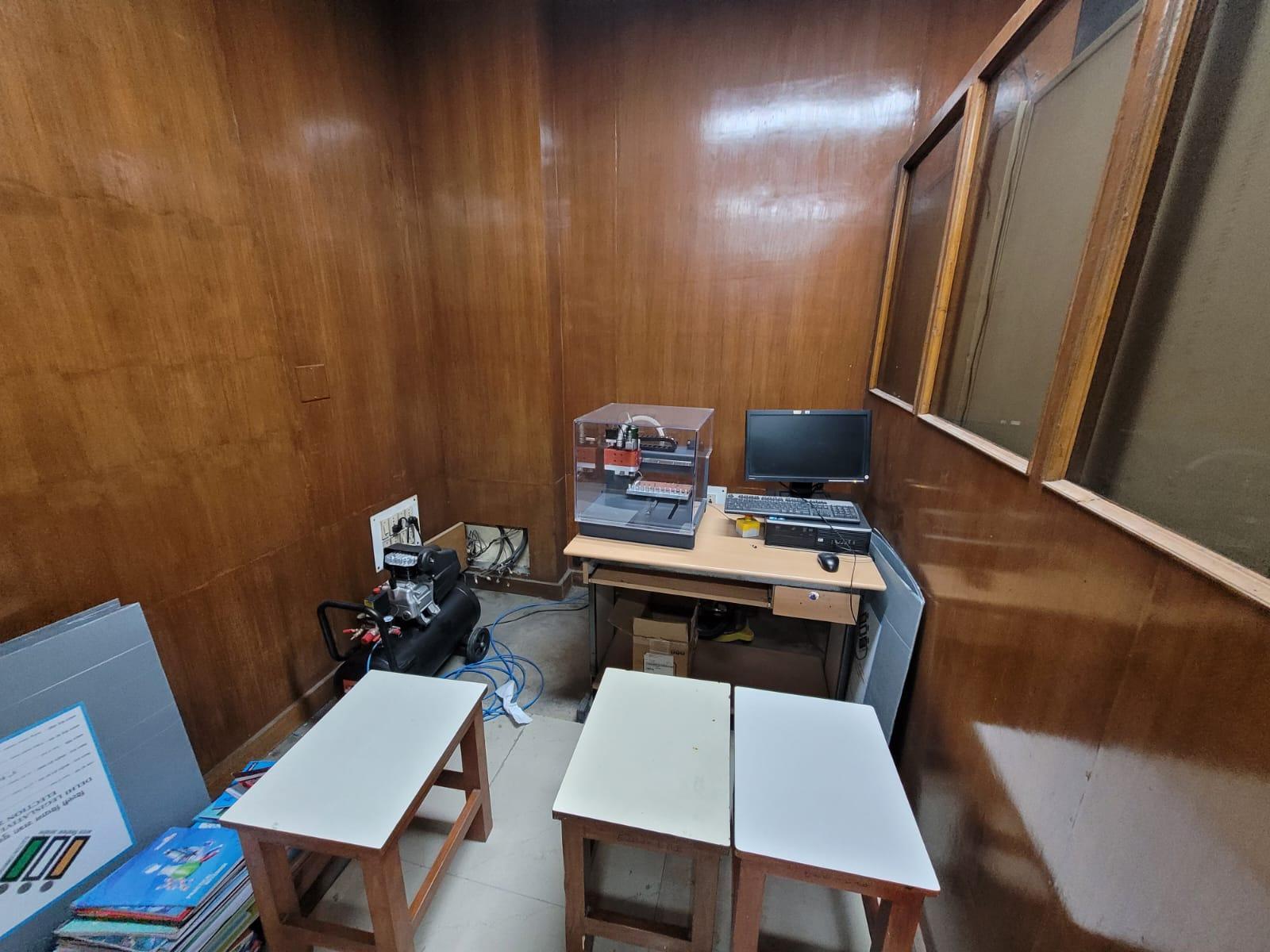
|
|
VLSI Design Lab
|
Location: 4015
This lab is primarily a teaching lab.
VLSI Design Laboratory has been set up in order to facilitate both UG/PG students and research scholars (JRFs) to conduct research in the field of analog and mixed-signal integrated circuit design, SoC design and emerging technologies in the VLSI domain.
|
| |
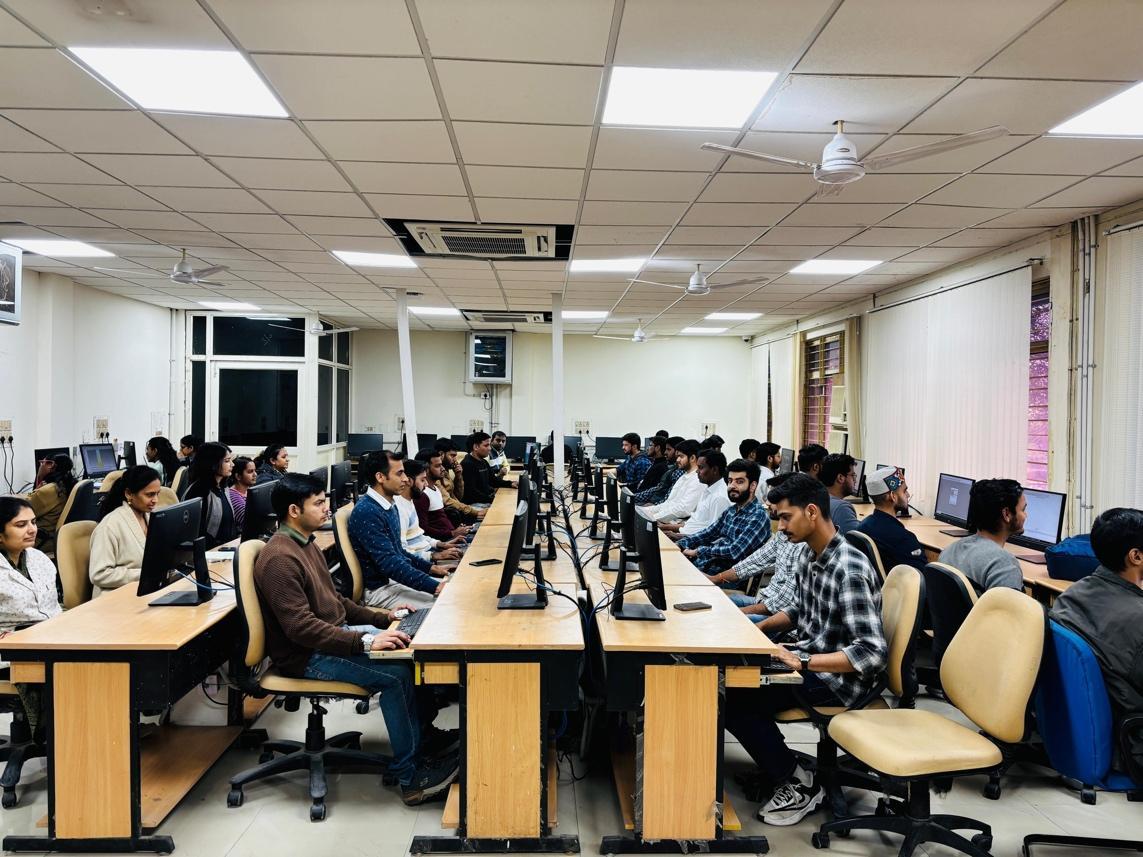
|
|
Electronics (I/II)
|
Location: 4012
This lab is primarily a teaching lab.
This lab mainly engages UG students to perform basic experiments related to diodes, transistors, and op-amps, which aids in understanding the circuit behavior at the component level.
|
| |
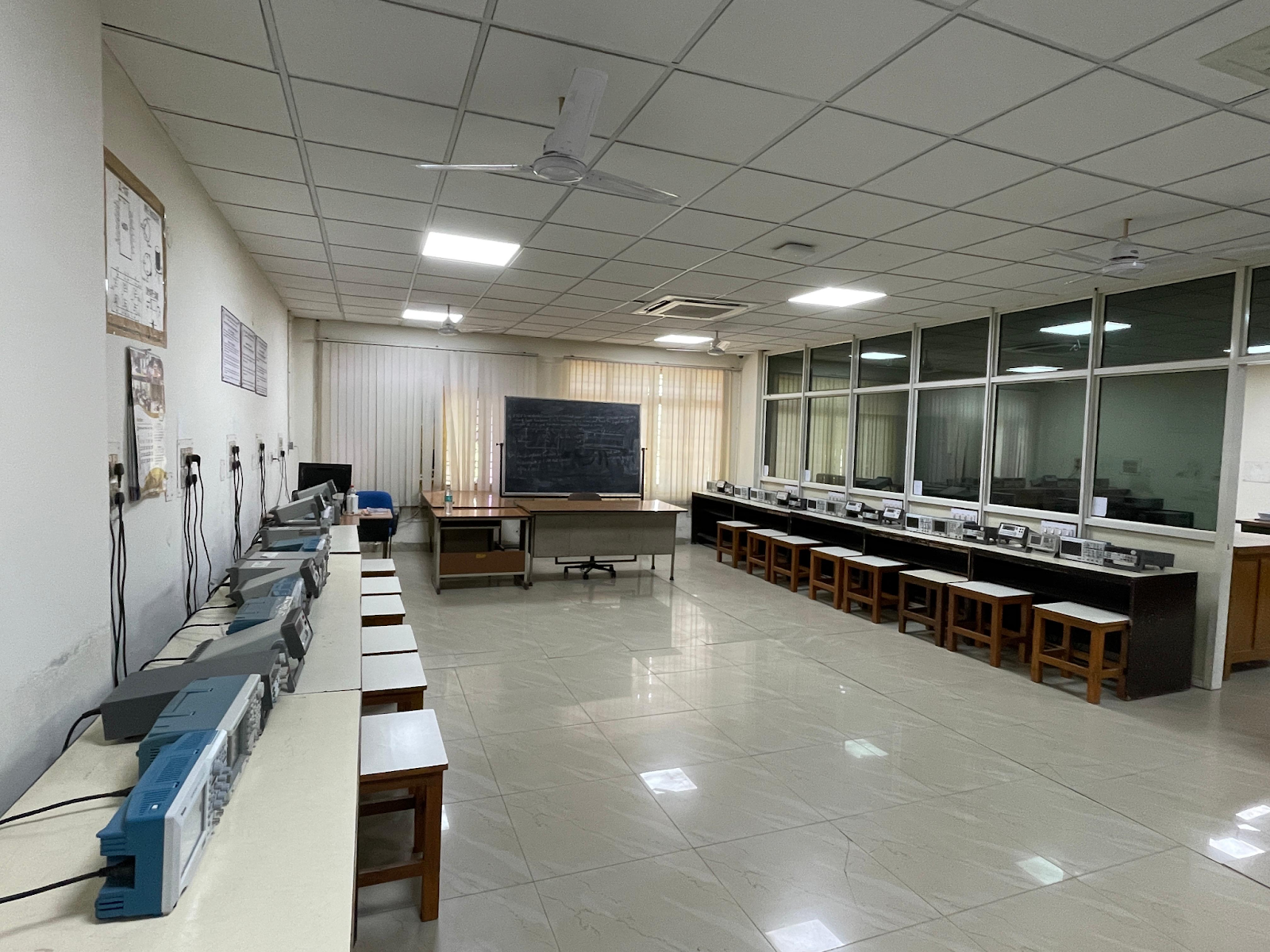
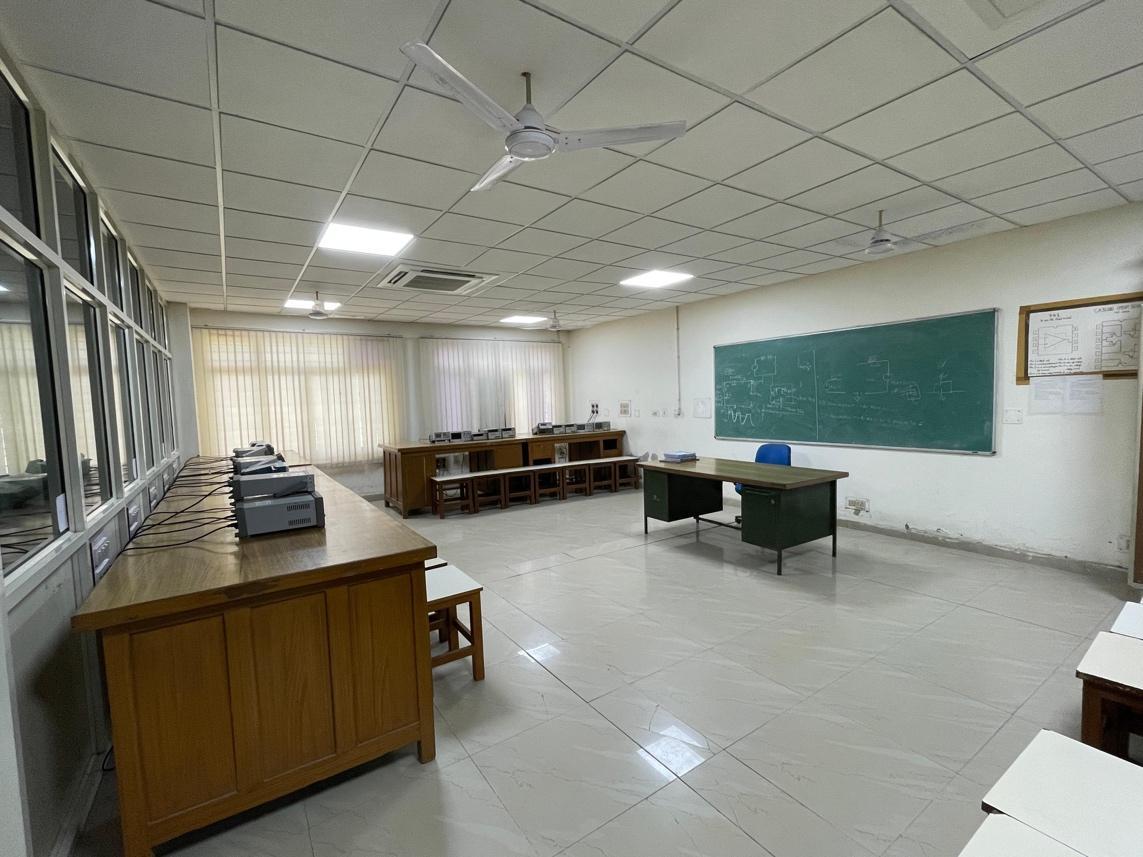
|
|
Microprocessor I/II
|
Location: 4112
This lab is primarily a teaching lab.
The Microprocessor Lab I/II of the Department of Electronics and Communication Engineering is located in Room 4112. This lab plays a crucial role in providing practical exposure to students in the areas of microprocessors, microcontrollers, and embedded systems. It supports the hands-on learning component of core courses such as Microprocessor Systems, Embedded Systems, and Internet of Things (IoT). The lab is equipped with a wide range of hardware platforms, including 8085 and 8086 microprocessor trainer kits, 8051 microcontroller kits, Arduino Uno and Arduino Duo boards, and ARM Cortex-based development kits. These platforms enable students to understand and implement fundamental concepts of processor architecture, assembly language programming, interfacing, and control systems. With the 8085 and 8086 kits, students gain insights into low-level programming, memory interfacing, interrupt management, and peripheral interfacing. The 8051 microcontroller systems introduce students to embedded control applications like LED control, keypad scanning, and sensor integration. Modern tools such as Arduino and ARM processors help bridge traditional microprocessor education with contemporary embedded and IoT applications. Arduino platforms are used along with basic sensors (temperature, IR, pressure, humidity etc.) to create smart systems and prototypes. ARM-based kits provide exposure to 32-bit processing and real-time applications.
|
| |
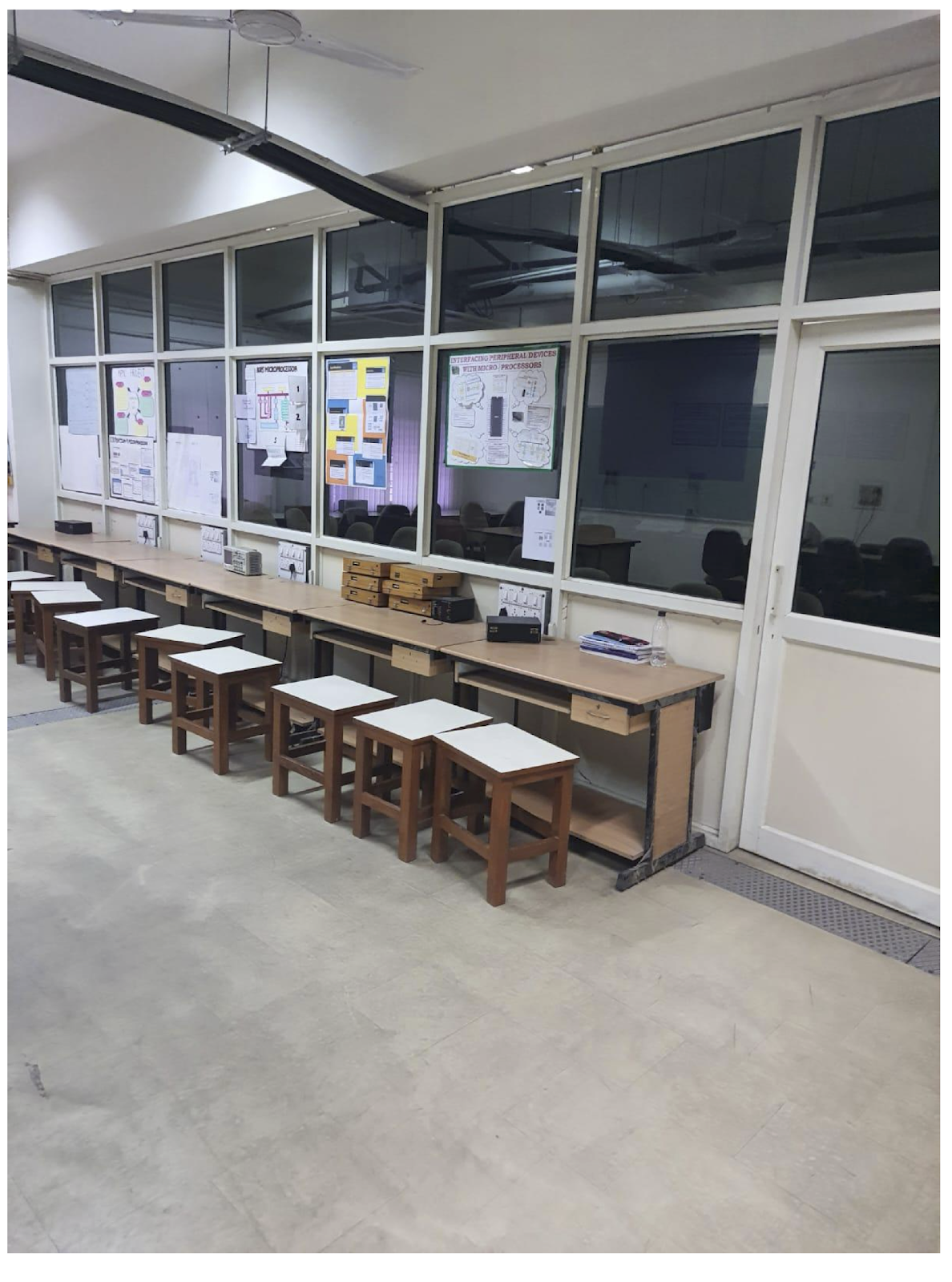
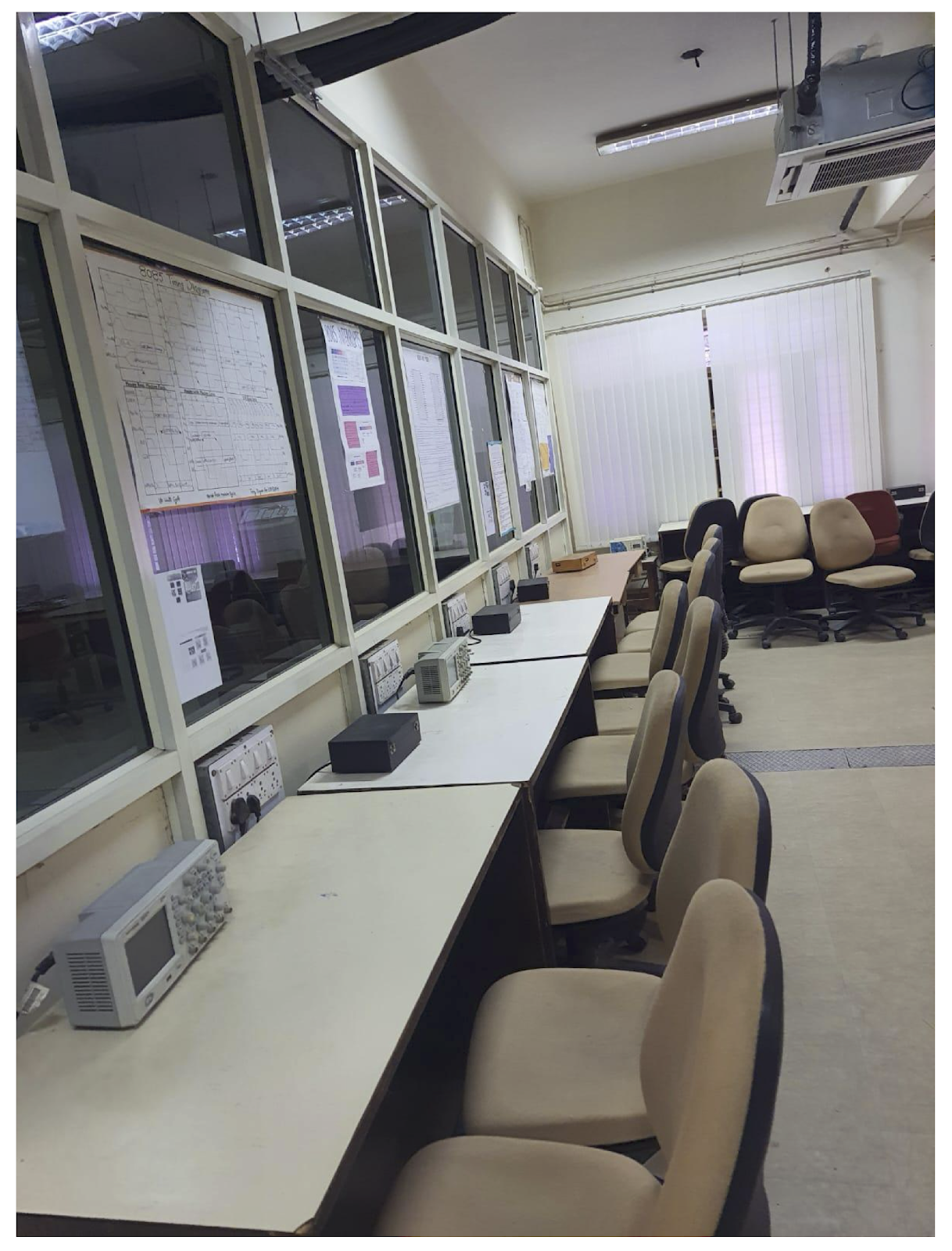
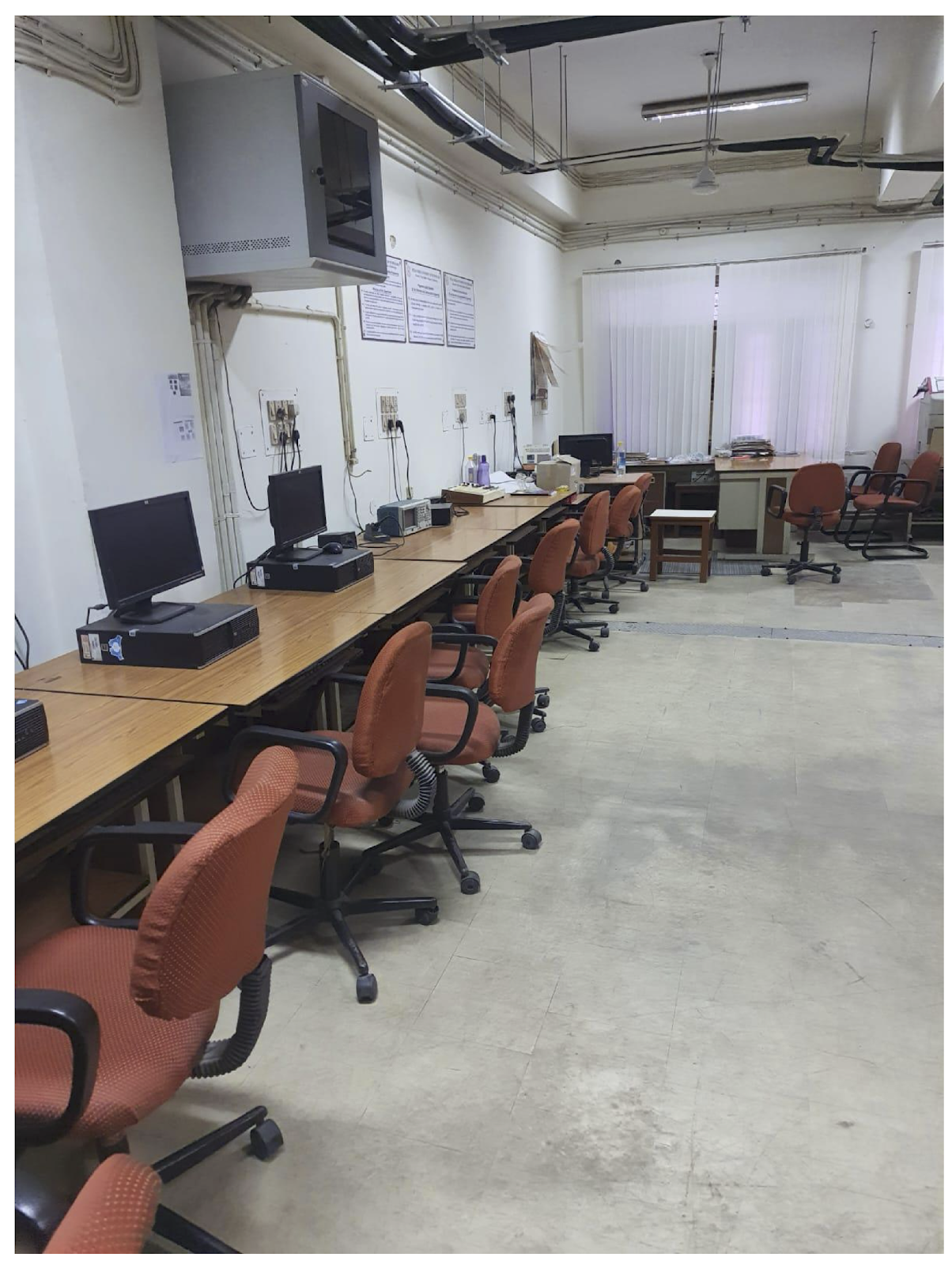
|
|
Multimedia Research Lab
|
Location: 4201
This lab is primarily a research lab.
This is a state-of-the-art research facility optimized for quantum and optical communication related precision experiments and secure communication.
|
| |
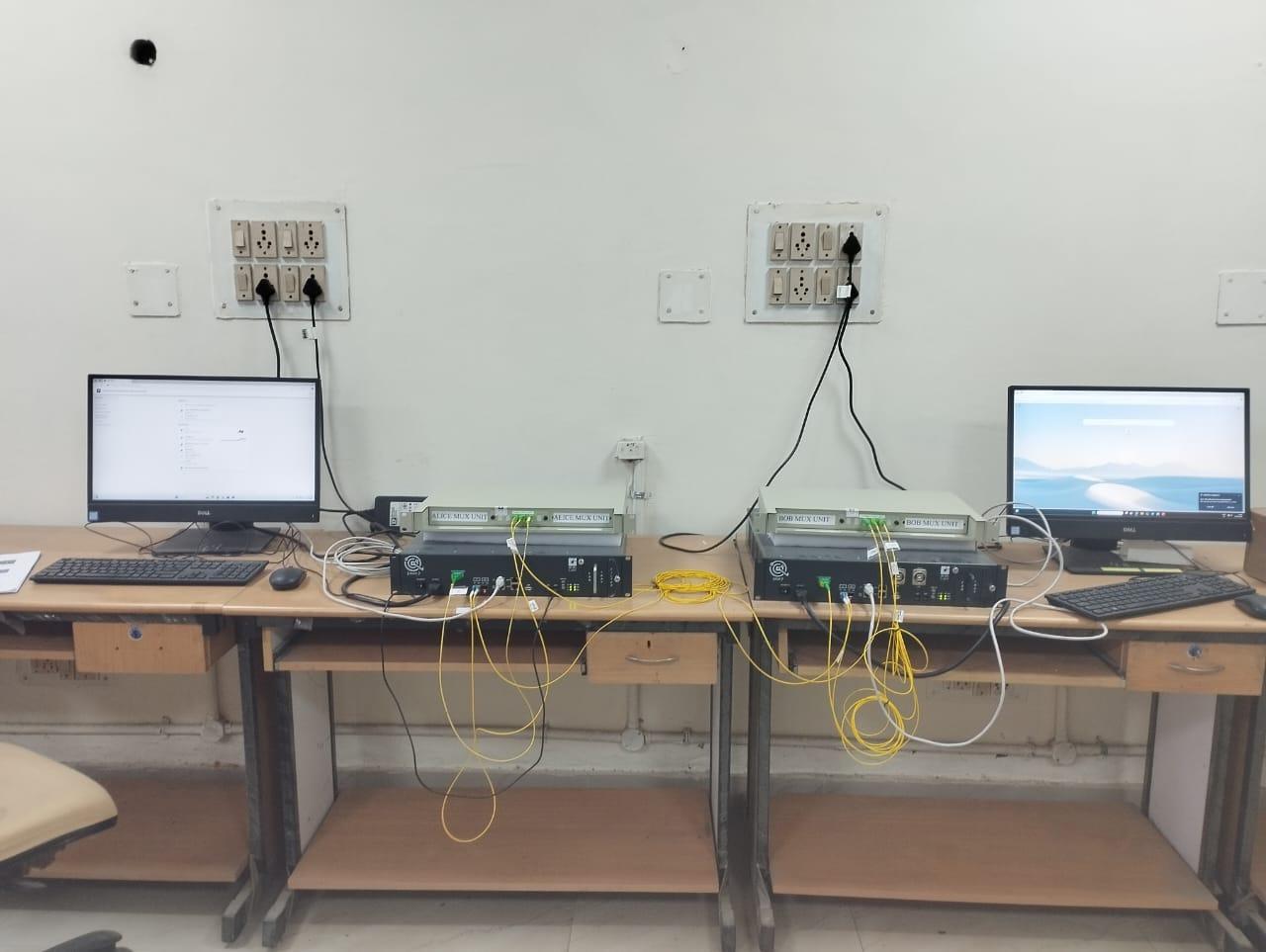 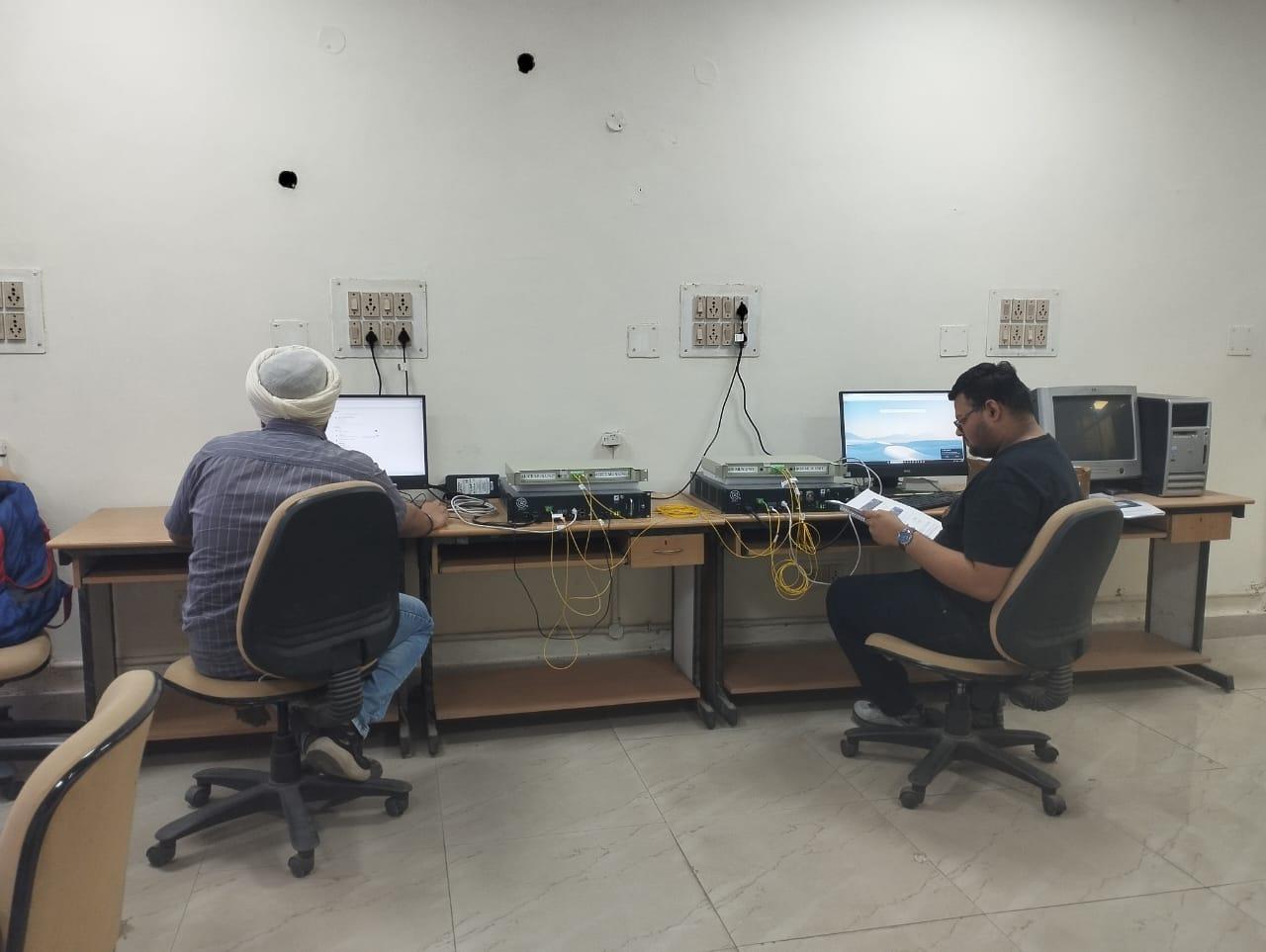
|
|
Communication Engineering Lab
|
Location: 4214
This lab is primarily a teaching lab.
The Communication Engineering Lab basically established to meet the requirement of Engineering graduates Lab practical in the area of Analog & Digital Communication as per the academic curriculum. The Laboratory has Digital Oscilloscopes, Communication Training Kits, Signal Generator etc. to perform the experiment in the lab for the B. Tech students of ECE/EIOT/ICE and IT branch.
|
| |
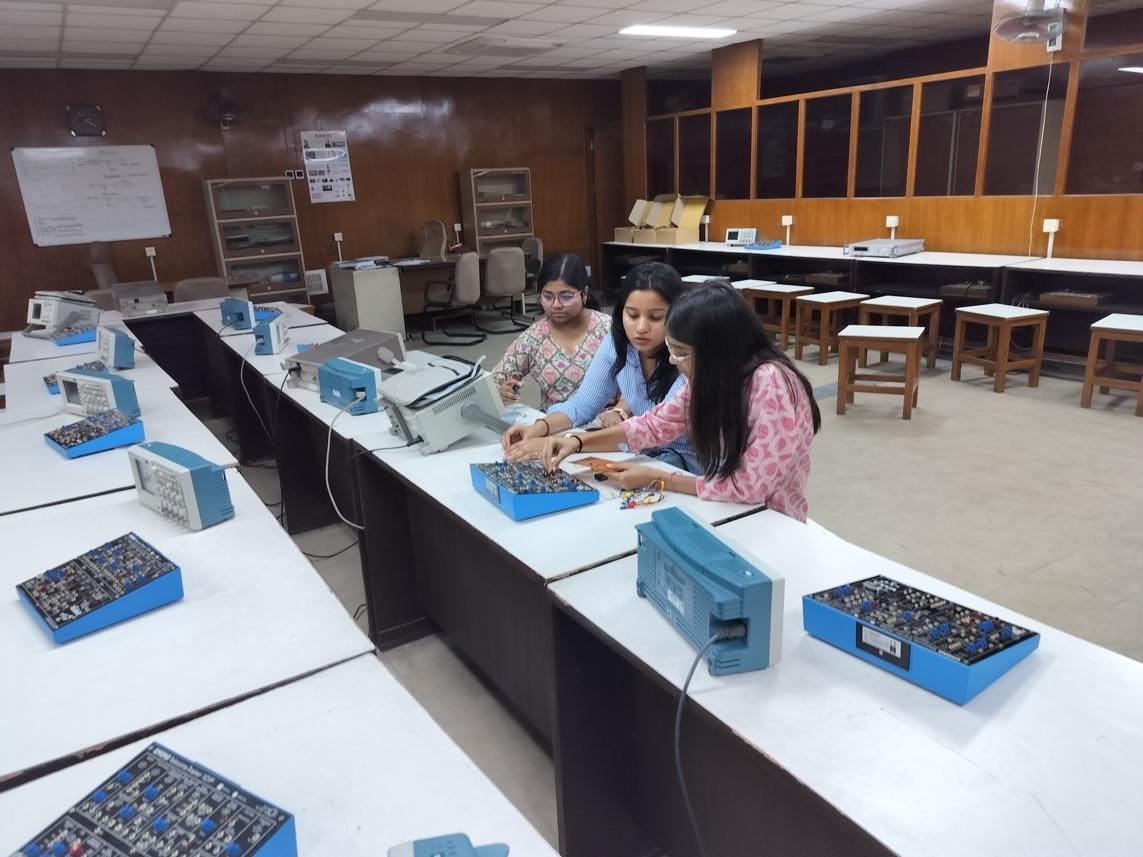
|
|
Advanced Communication Engineering Lab
|
Location: 4215
This lab is primarily a teaching lab.
The Advanced Communication Engineering Laboratory established to educate the Graduate and PostGraduate Engineering students in the field of Analog and Digital Communication. The Laboratory has various equipment like Digital Storage Oscilloscopes, Signal Generators, Experimental kits of Analog and Digital Communication, PCs loaded with MATLab Software, Spectrum Analyzer etc. to perform the experiment in the Lab.
This lab is heavily used by ECE/EIOT/IT students.
|
| |
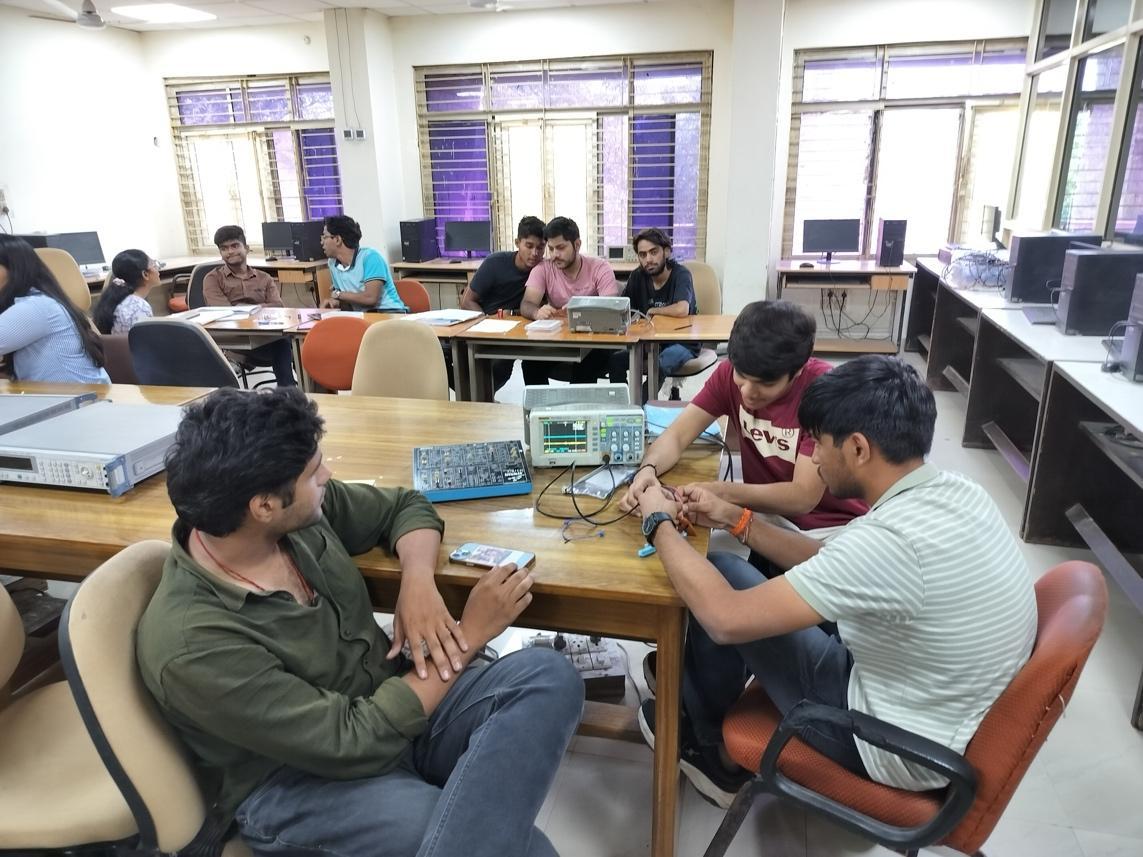
|
|
Wireless Communication Lab
|
Location: 4025A
This lab is primarily a research lab.
The lab is developed to enhance the research capabilities in the area of wireless communication.
|
| |
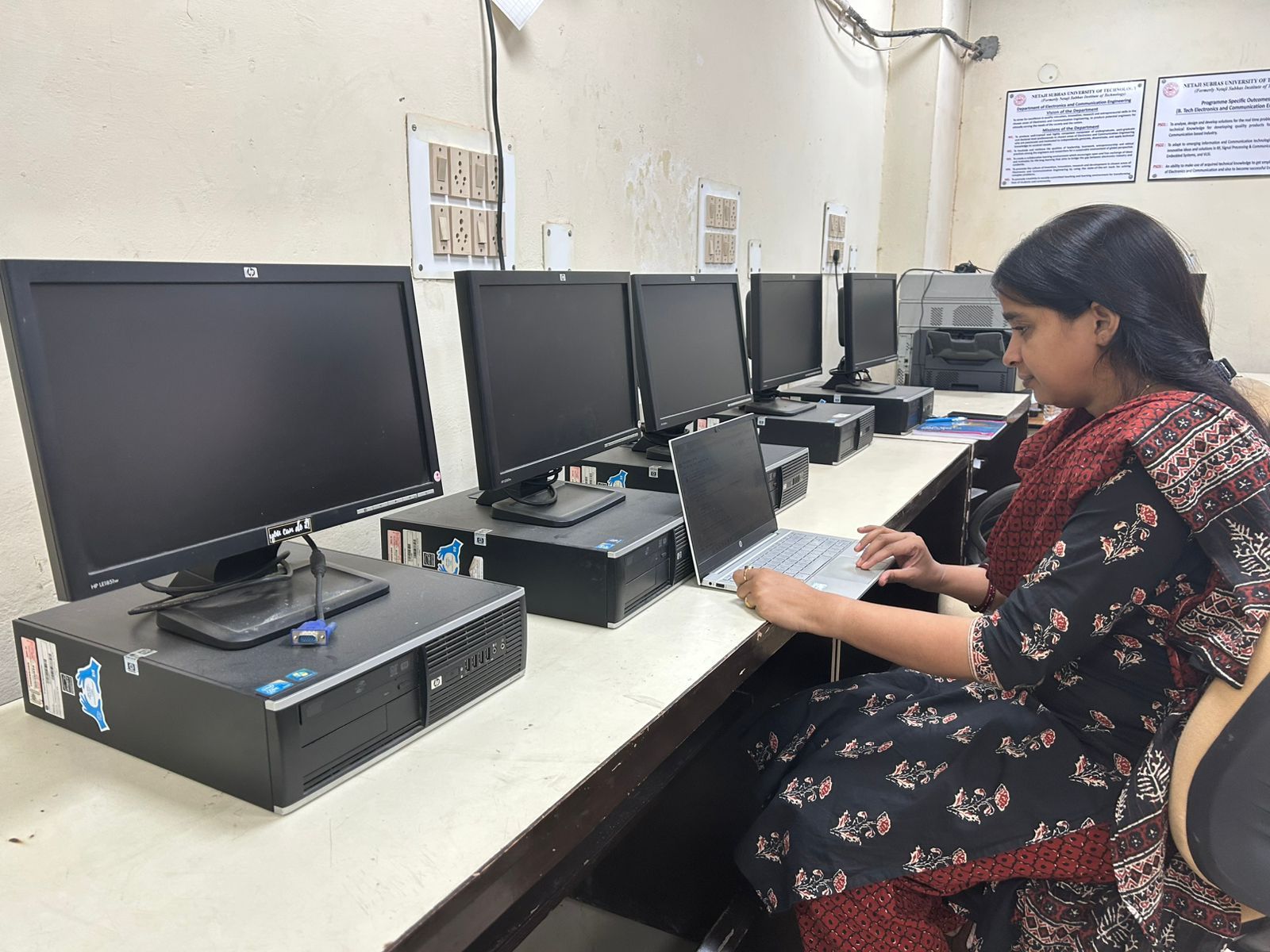
|
|
Circuit simulation lab
|
Location: 4216
This lab is primarily a teaching lab.
The Circuit Simulation Lab offers ample seating capacity and is well-equipped to support both hardware-based and software-based experiments. It serves as a versatile platform for conducting a wide range of experiments in analog and digital electronics.
The lab layout has been recently redesigned to enhance functionality and accessibility. A variety of new hardware components have been procured, including Digital Storage Oscilloscopes (DSOs), function generators, digital multimeters, trainer kits, regulated power supplies, and a comprehensive range of ICs. These additions ensure that the lab can effectively support experiments across multiple subjects and academic levels.
In addition to the hardware enhancements, the lab is equipped with the OrCAD tool suite, enabling students to perform schematic design, circuit verification, and simulations with industry-grade software tools.
This combination of modern infrastructure and equipment makes the lab an excellent environment for hands-on learning and experimentation in the field of electronics.
|
| |
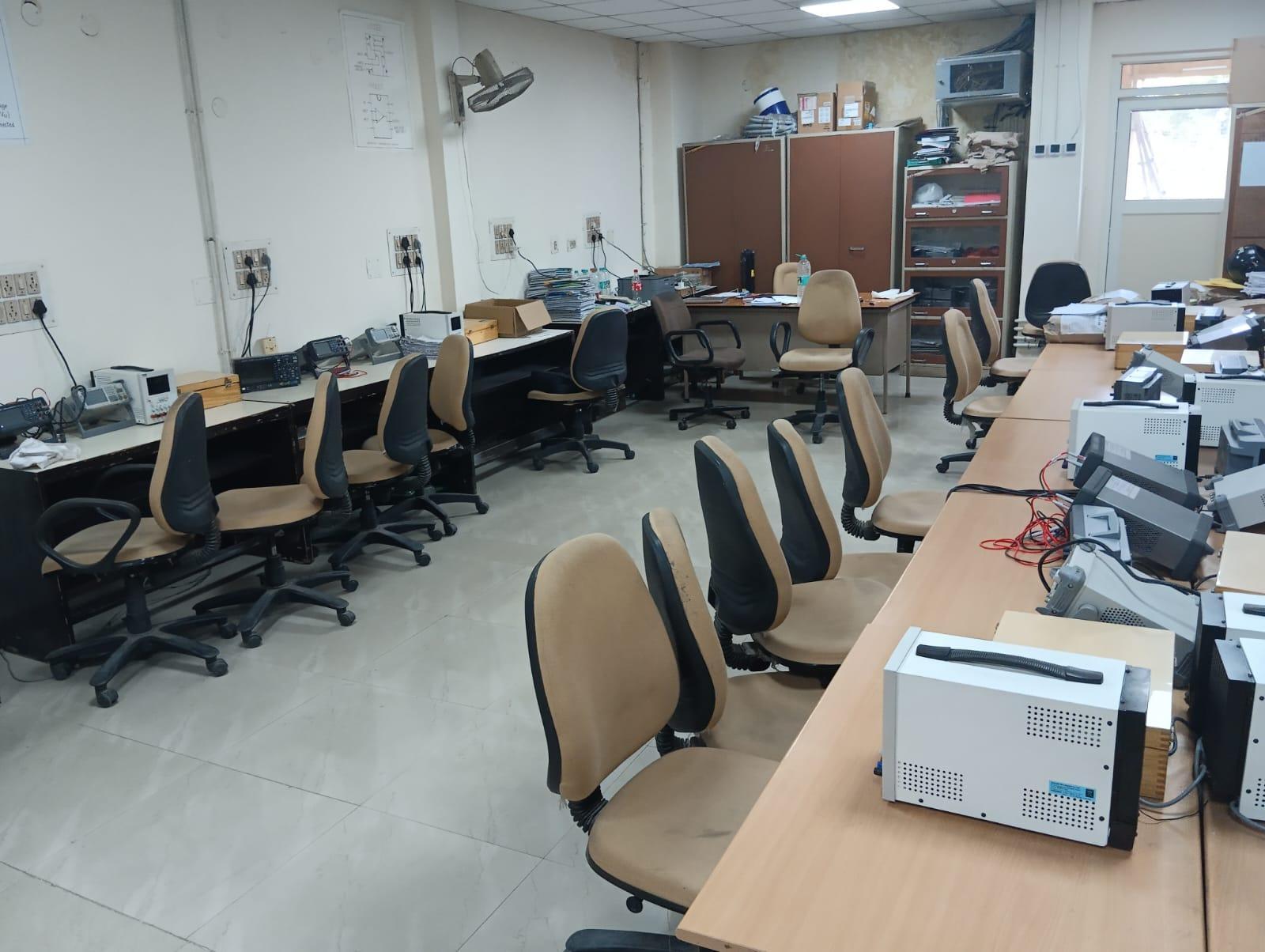
|
|
Advanced CASP Research Lab
|
Location: 4125
This lab is primarily a research lab.
This Lab is established for Research Scholars for their research work in the area of Communication and Signal Processing. The Lab is equipped with the latest PCs, Printers and Matlab Software.
|
| |
|
|
C.E.D.T Lab
|
Location: 4301
CEDT is primarily a Research Lab. It was established in 2003 and is open to any student of NSUT or even outside, for exploratory work in electronics.
|
| |
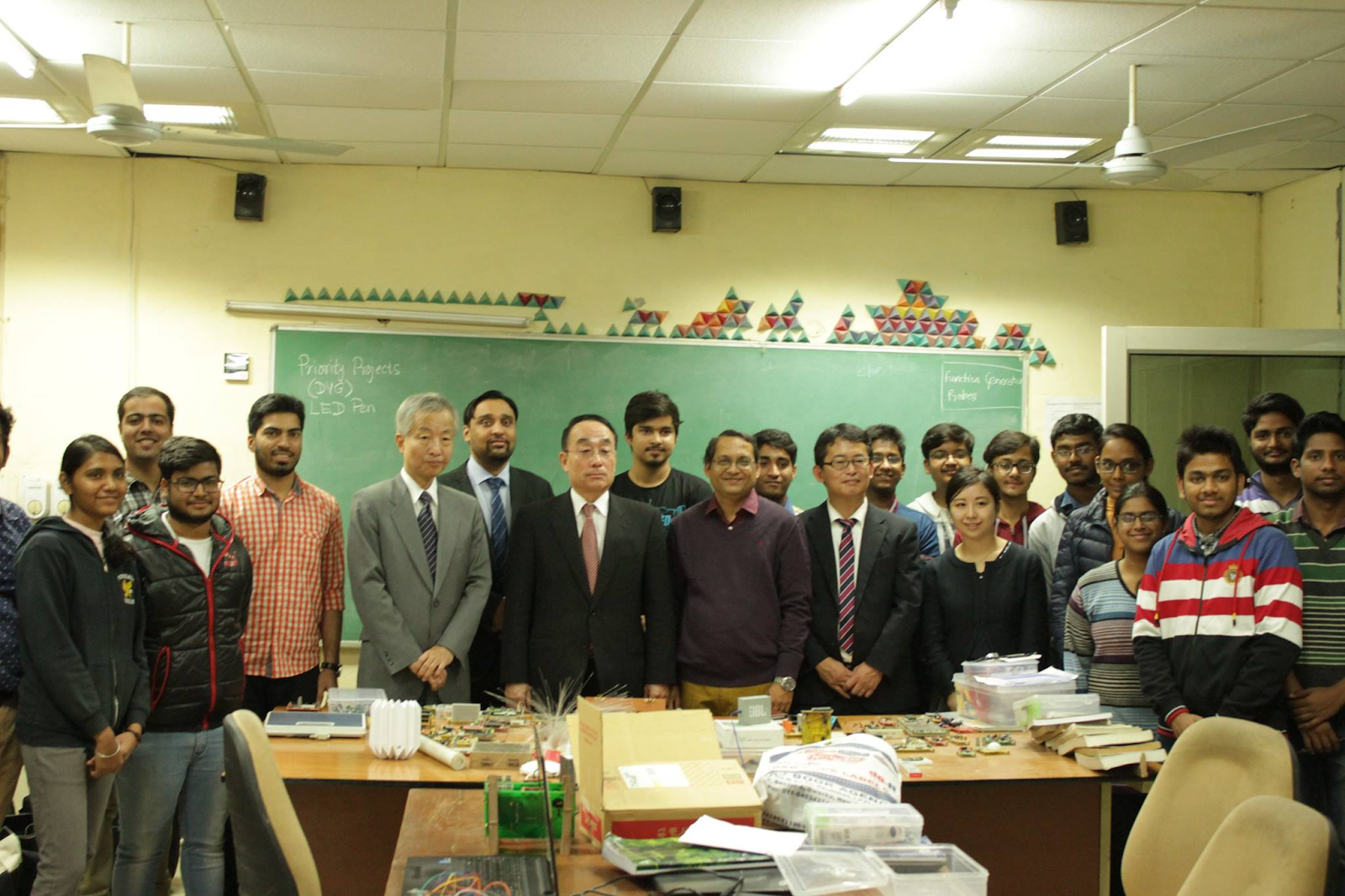  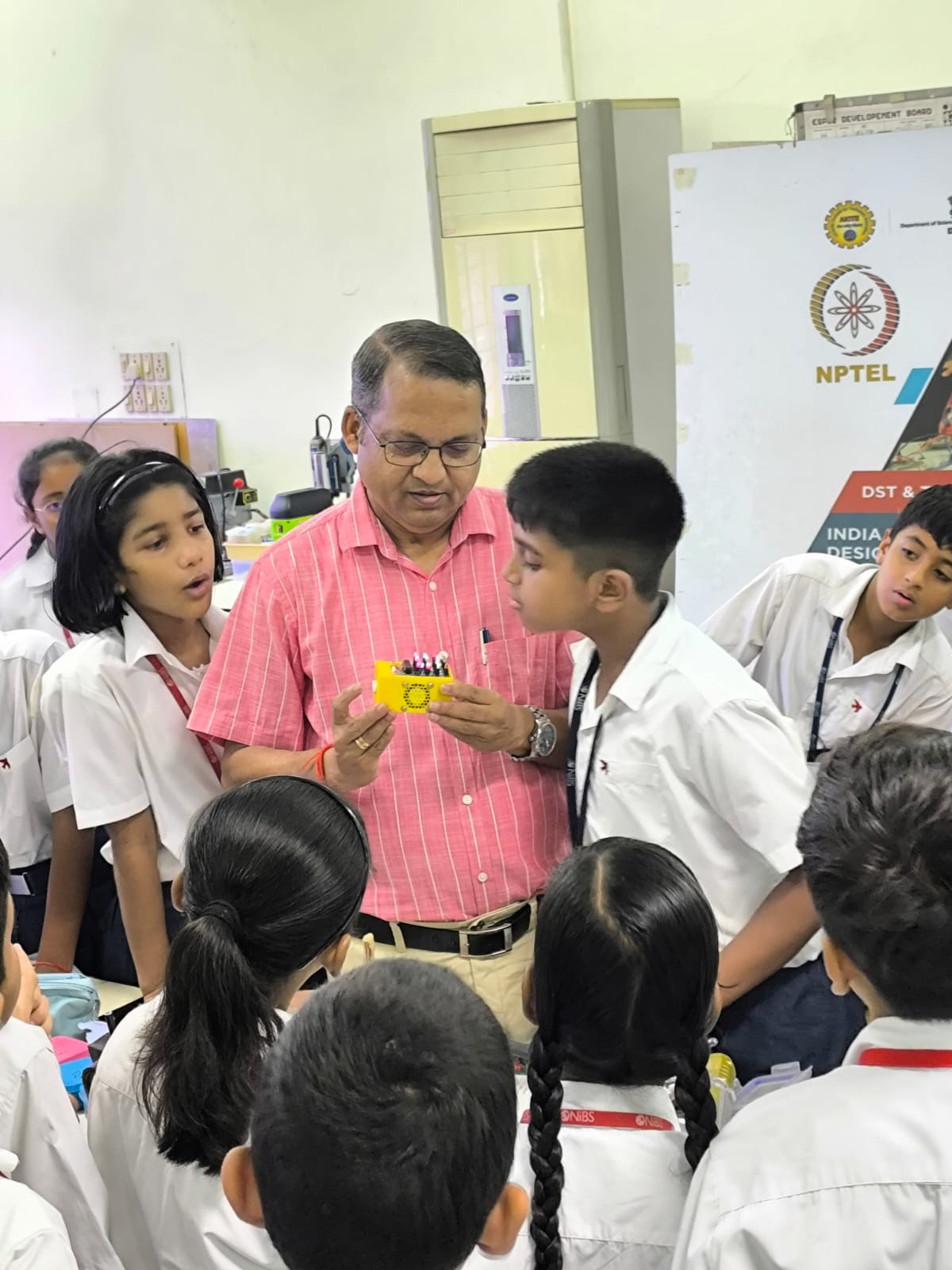
|
|
Analog Integrated Circuit Lab I/II
|
Location: 4218
This lab is primarily a teaching lab.
Electronics based lab for experiments related to Electronics + LIC + Analog Filter design.
|
| |
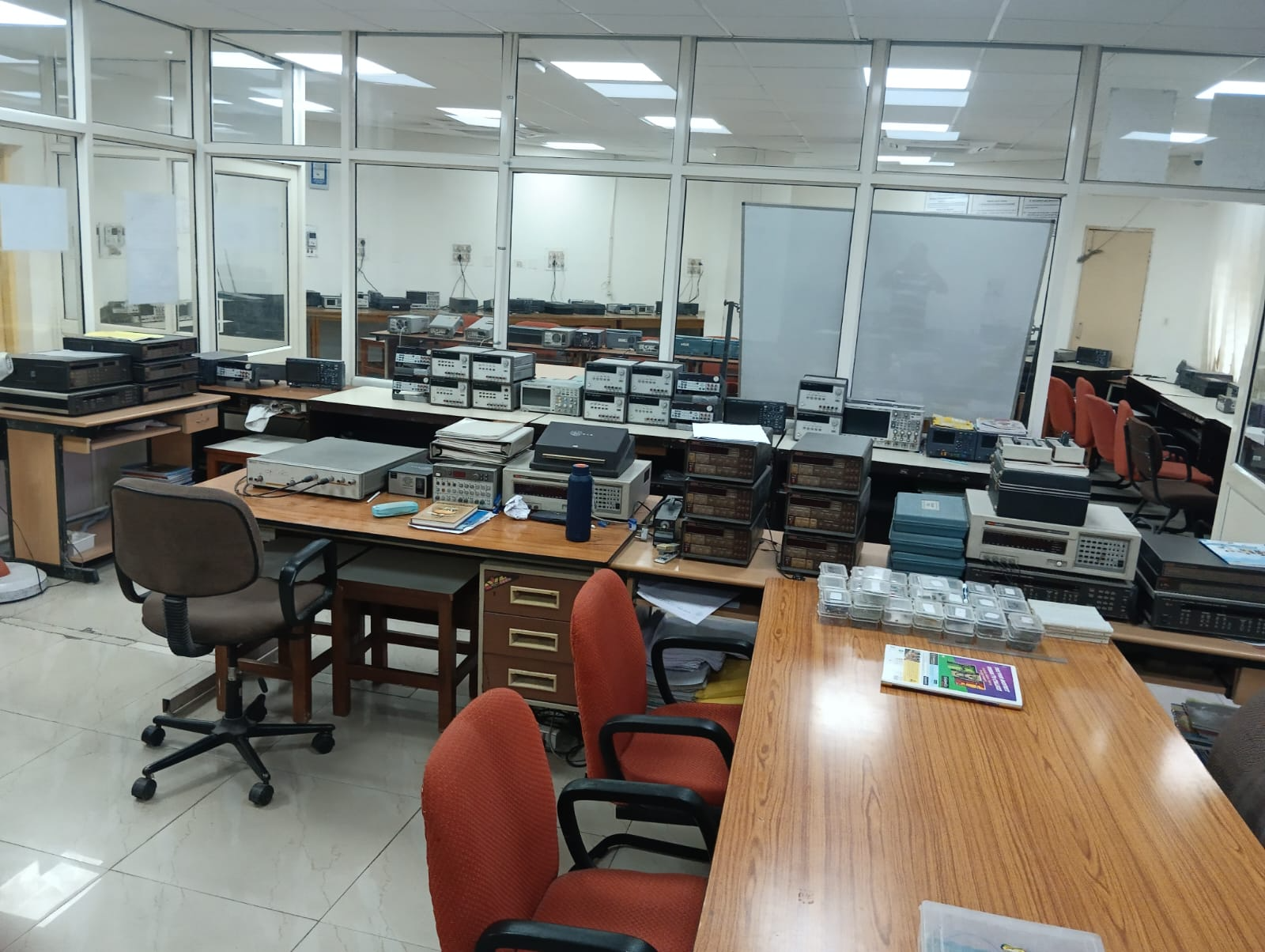
|
|
Optical Communication Research Lab
|
Location:4203-A
The Optical Communication Research Lab focuses on optical wireless communication systems. Our work spans free-space optics, modulation techniques, NOMA, and optical signal processing. The lab supports theoretical research aimed at improving the speed, efficiency, and reliability of optical networks for future communication needs.
We envisage to include an experimental setup in the laboratory to emulate tge optical wireless channel.
|
| |
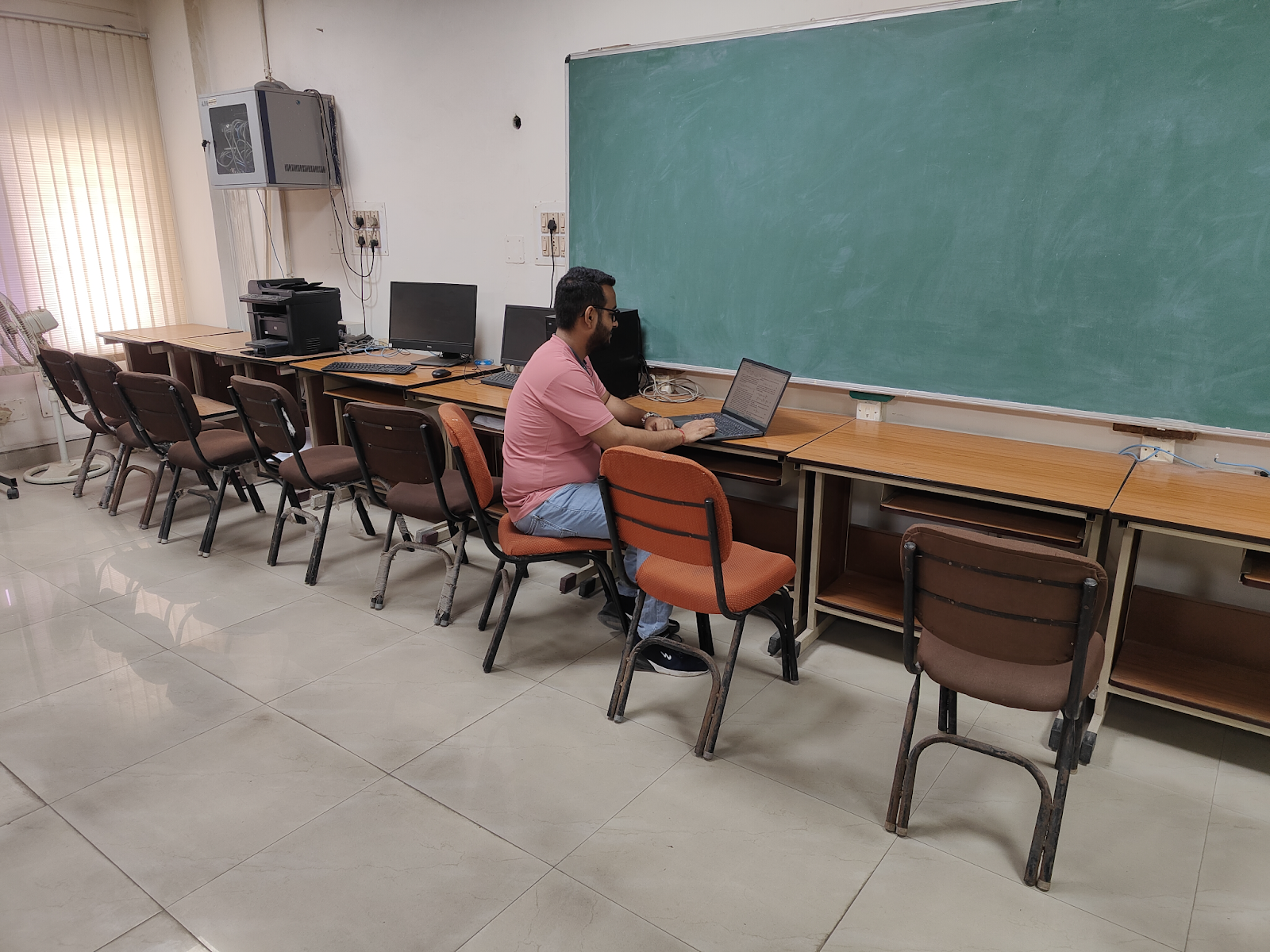
|
|
Digital & Optical Communication Lab
|
Location: 4203-B
The Digital and Optical Communication Lab was established with the objective of providing hands-on experience and practical understanding in the areas of fiber optics and optical communication systems. This laboratory supports a wide range of experiments designed to familiarize students with the fundamental principles and applications of digital and optical communication technologies. It serves as a valuable resource for both undergraduate and postgraduate students, enhancing their theoretical knowledge with practical skills.
Currently, the lab is equipped with three advanced fiber optic trainer kits that allow students to explore signal transmission through optical fibers, study losses, bending effects, and splicing techniques. To complement the trainer kits, the lab houses three high-precision function generators for signal input and waveform analysis, along with digital storage oscilloscopes that enable real-time monitoring and analysis of signal properties. These instruments provide crucial insights into waveform behavior, signal distortion, and noise effects in optical channels.
The lab encourages a learning-by-doing approach, fostering innovation and experimentation. It plays a critical role in preparing students for careers in modern communication technologies, optical networking, and photonics. The facility is also periodically updated to incorporate emerging trends and tools in the optical communication domain, ensuring it remains relevant and industry-aligned.
|
| |
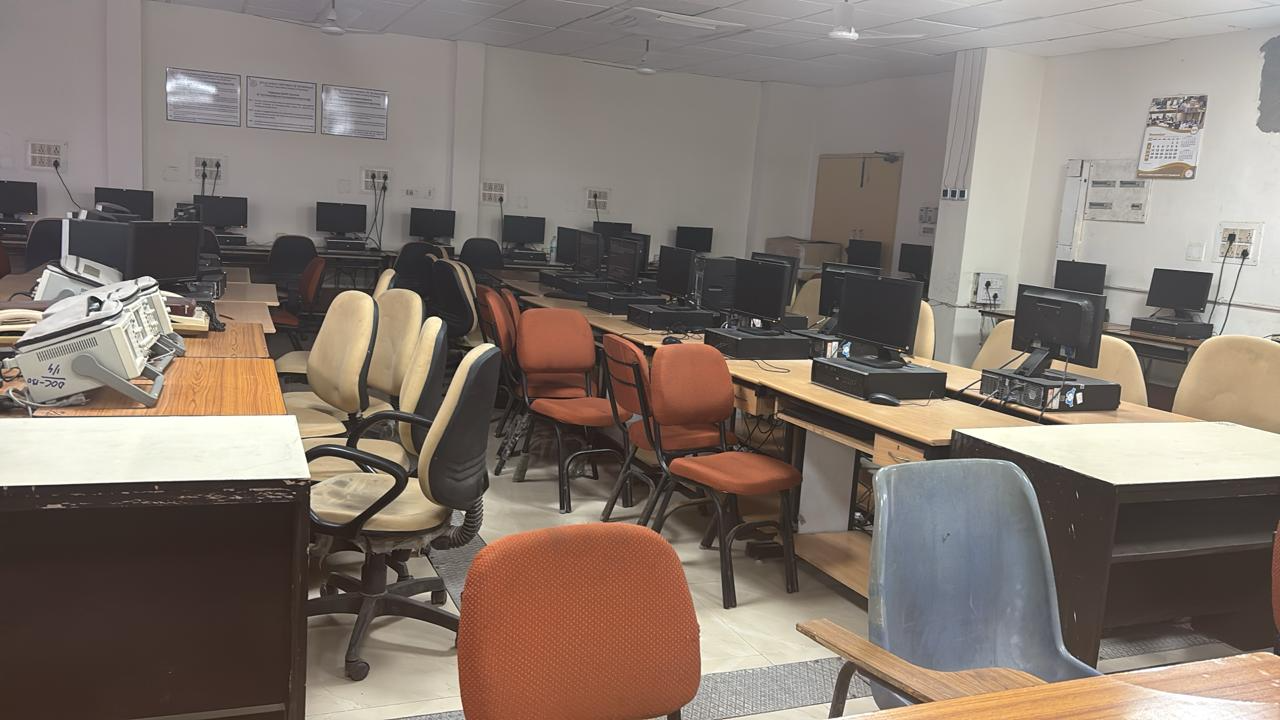
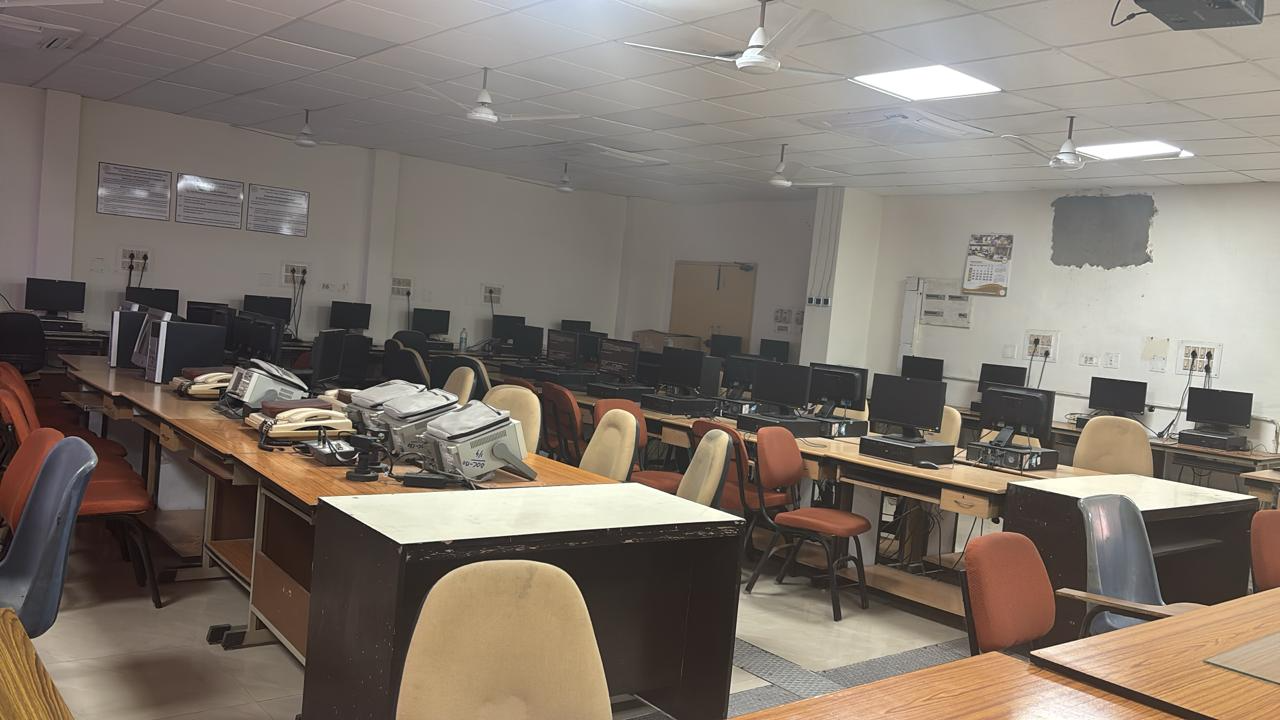
|
|
Electronics Research Lab
|
Location:4016
General information about the lab
This lab is primarily a research lab.
The laboratory is dedicated to enhancing research capabilities in Low Power VLSI Design as well as in the emerging domains of Fractional Order Analog and Digital Circuits.
|
| |
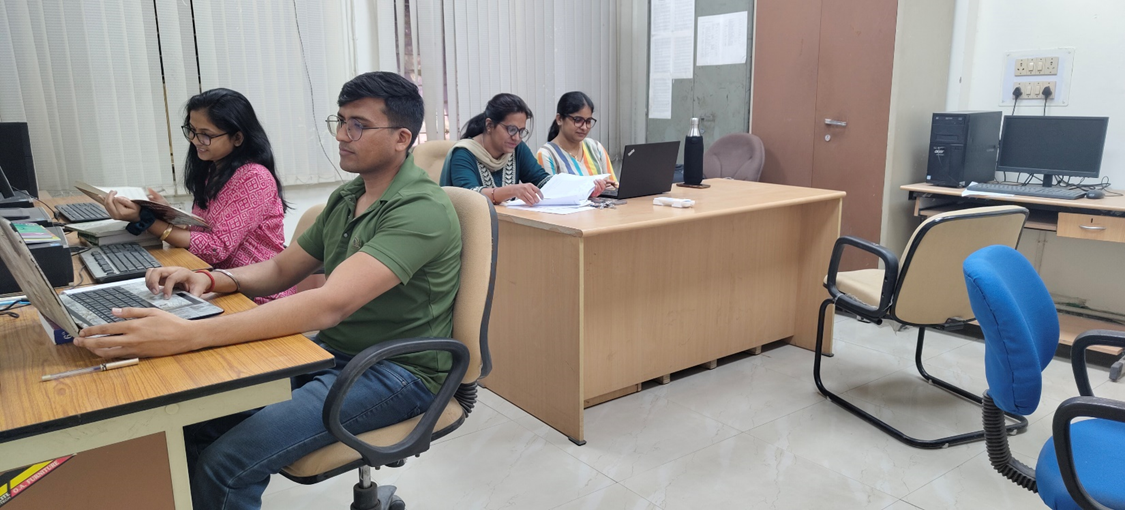
|
|
Microwave Engineering Lab
|
Location:4101
The Microwave Engineering Lab is developed to support undergraduate, postgraduate, and research-level experimentation and innovation in the field of microwave and RF engineering. The lab is equipped with advanced instrumentation including microwave workbench setups, Keysight Vector Network Analyzers (VNA), the ANSYS Electromagnetic Suite (HFSS), and a wide range of microwave components such as waveguides, couplers, and antennas. It provides students and researchers hands-on experience in designing, simulating, and testing microwave circuits and systems, bridging the gap between theoretical concepts and practical applications in modern communication and sensing technologies.
|
| |
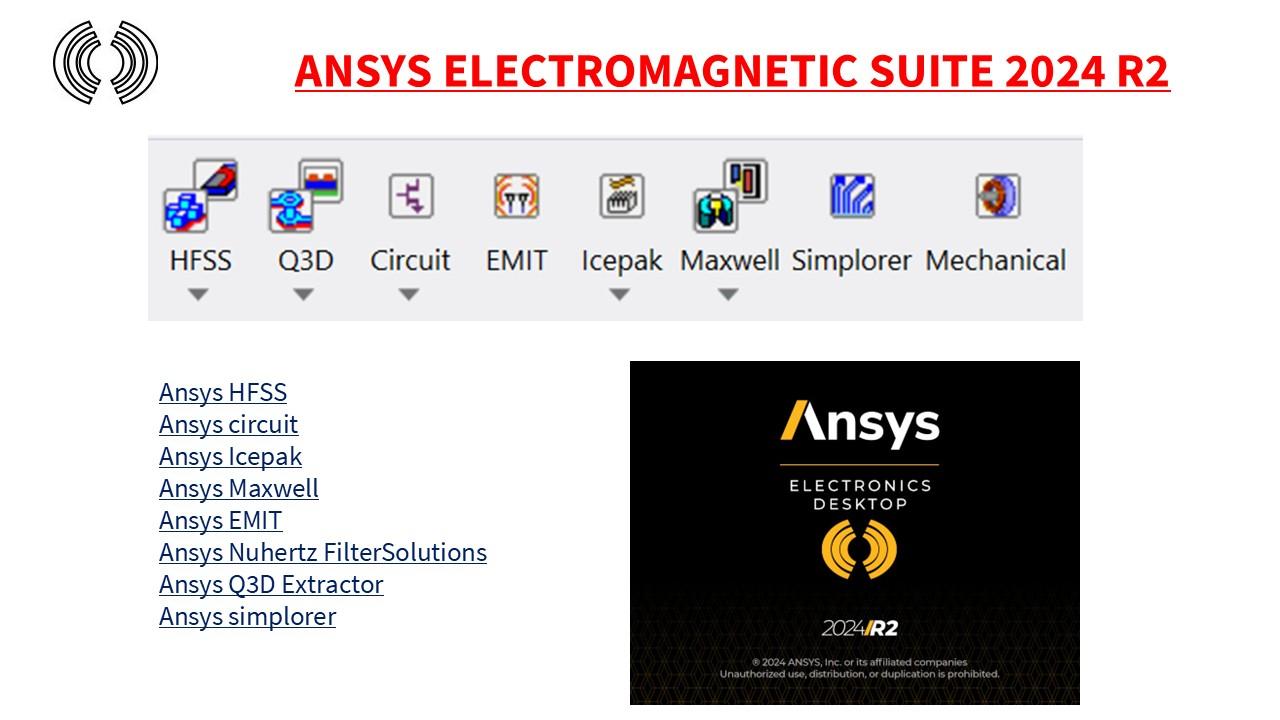 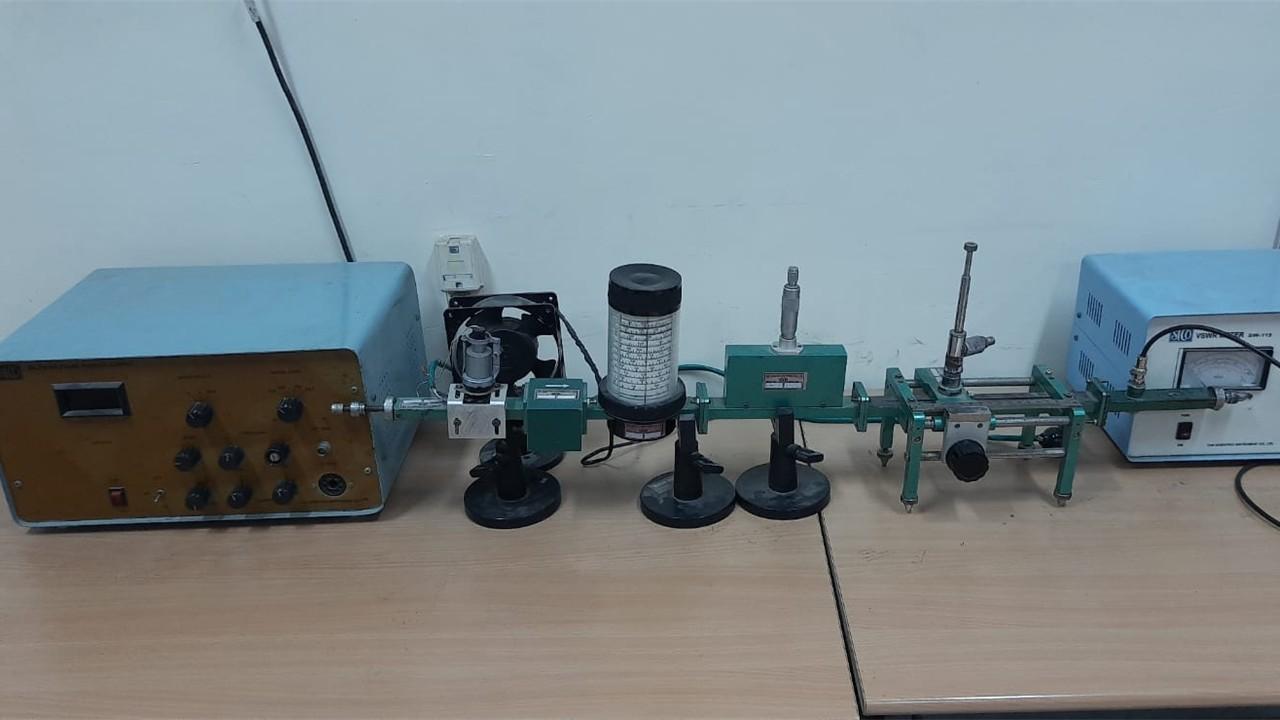 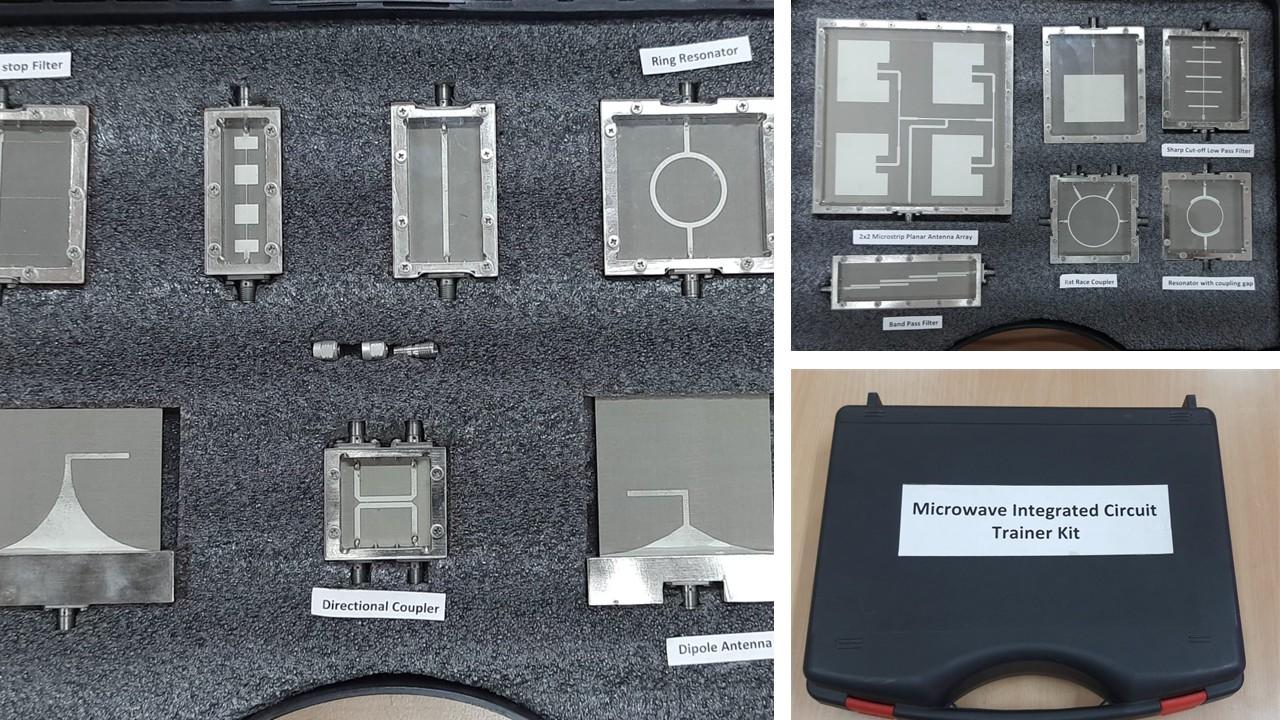 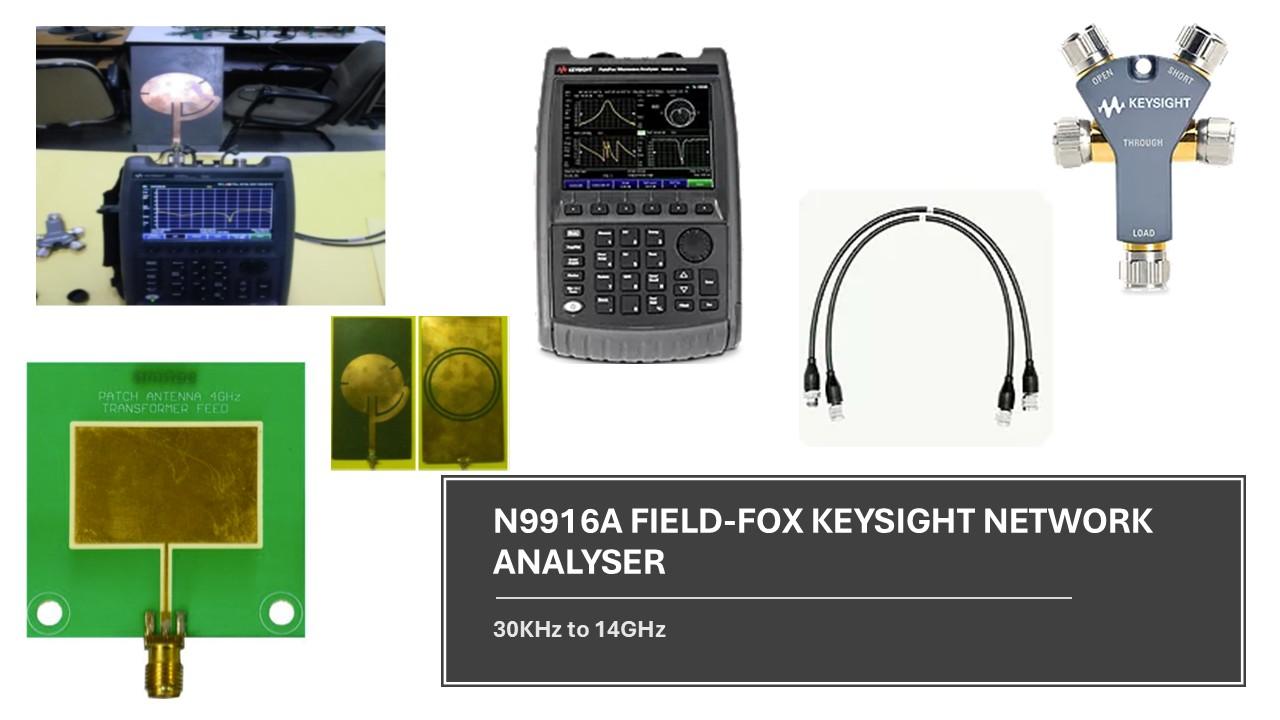 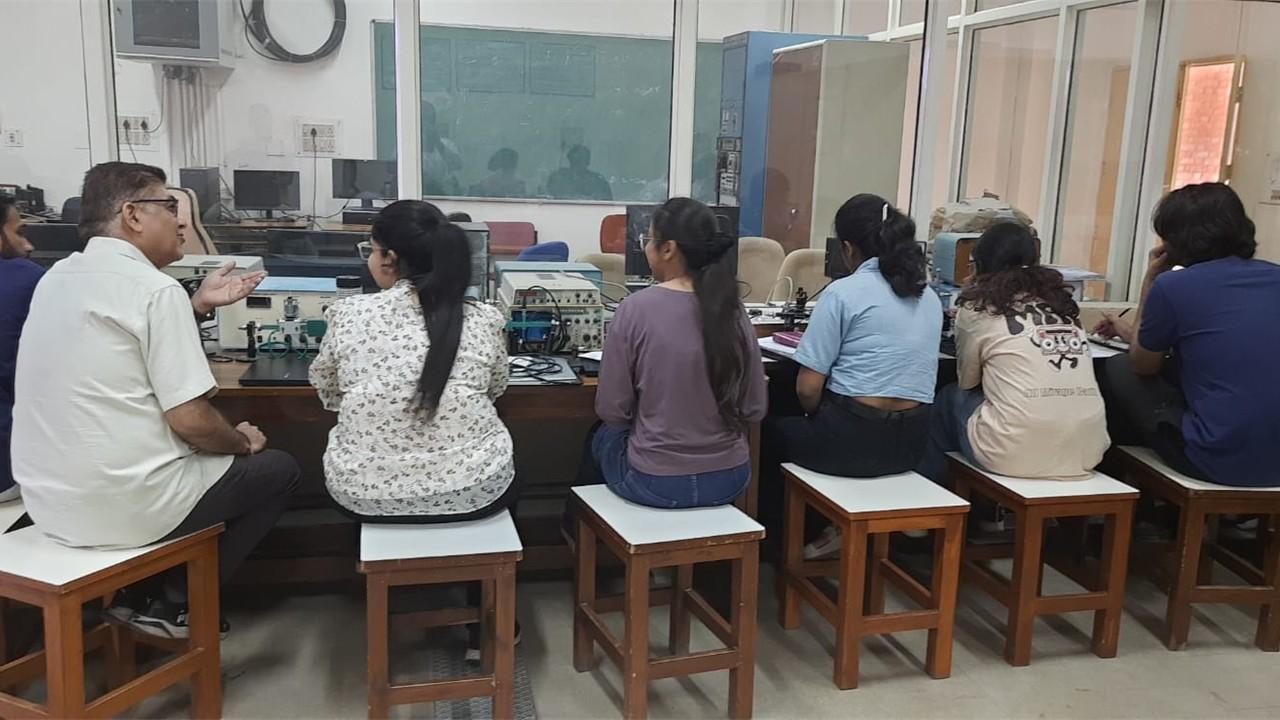
|
|
Digital Electronics Lab
|
Location: 4102
This lab is primarily a teaching lab.
The Digital Electronics Lab at NSUT Main Campus provides students with hands-on experience in designing, analyzing, and testing digital circuits. The lab supports experiments related to combinational and sequential logic, multiplexers, decoders, flip-flops, counters, and more. This lab plays a crucial role in bridging theoretical concepts with practical applications, fostering a deeper understanding of digital system design
|
| |
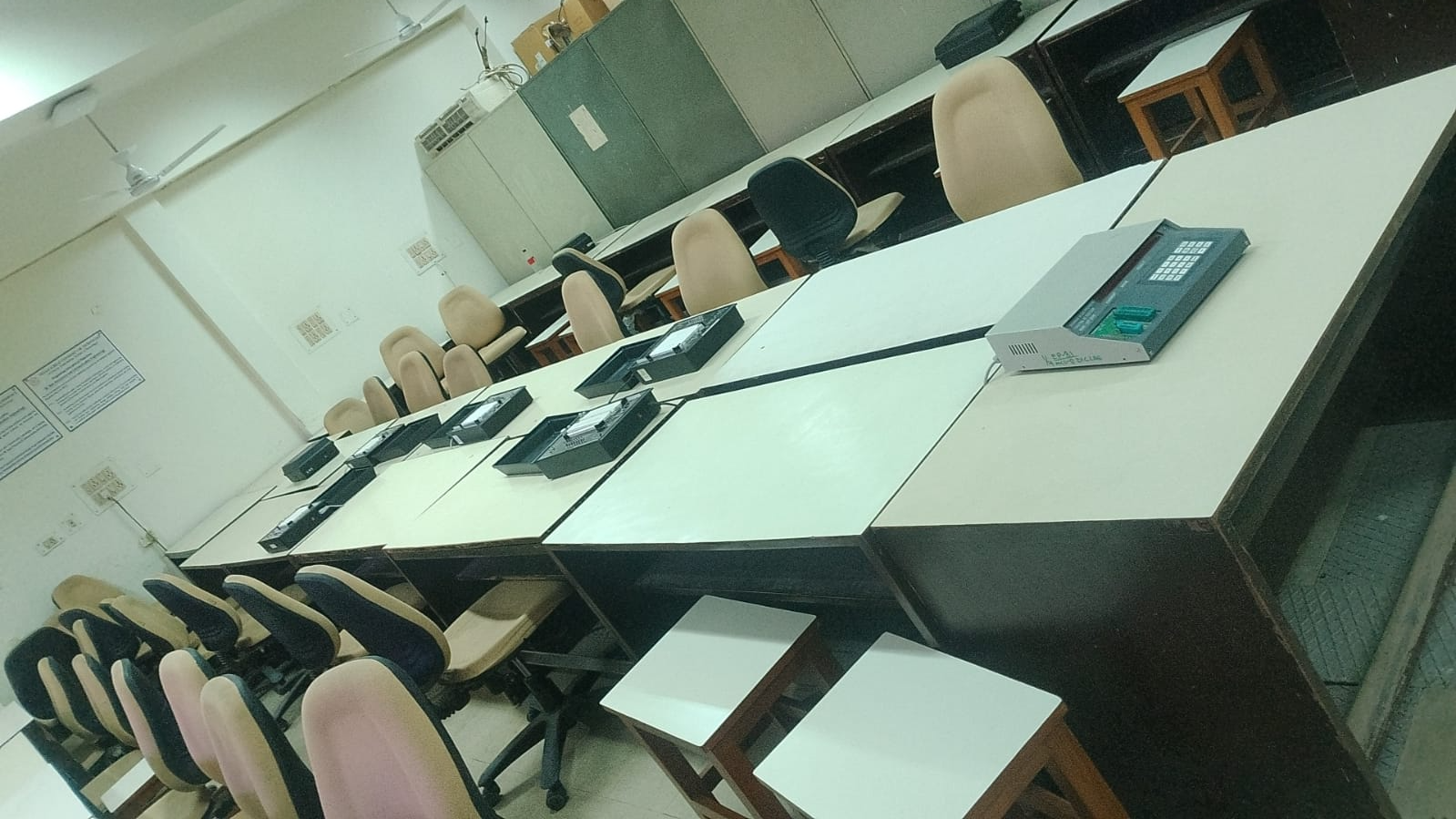
|
|
Statistical Signal Processing Lab
|
Location:4127
This lab is primarily a research lab.
It is involved in research on Quantum computing and telecommunication.
|
| |
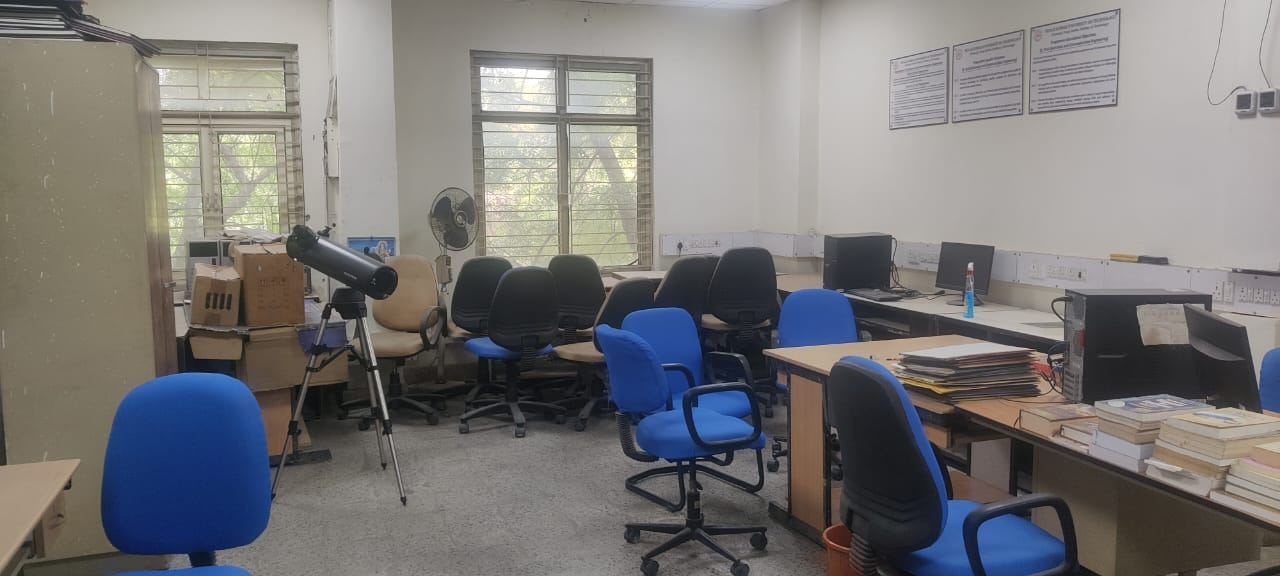
|
|
RF & Microwave Research Lab
|
Location:4124
The RF Engineering Lab is a specialized research-oriented facility focused on the design, simulation, and analysis of high-frequency circuits and systems. Equipped with the ANSYS Electromagnetic Suite (HFSS), the lab enables advanced electromagnetic modeling and optimization of RF components such as antennas, filters, and transmission lines. It serves as a vital platform for research scholars working on cutting-edge projects in wireless communication, radar systems, and RF circuit design, offering a robust environment for innovation and experimentation in radio frequency engineering.
|
| |
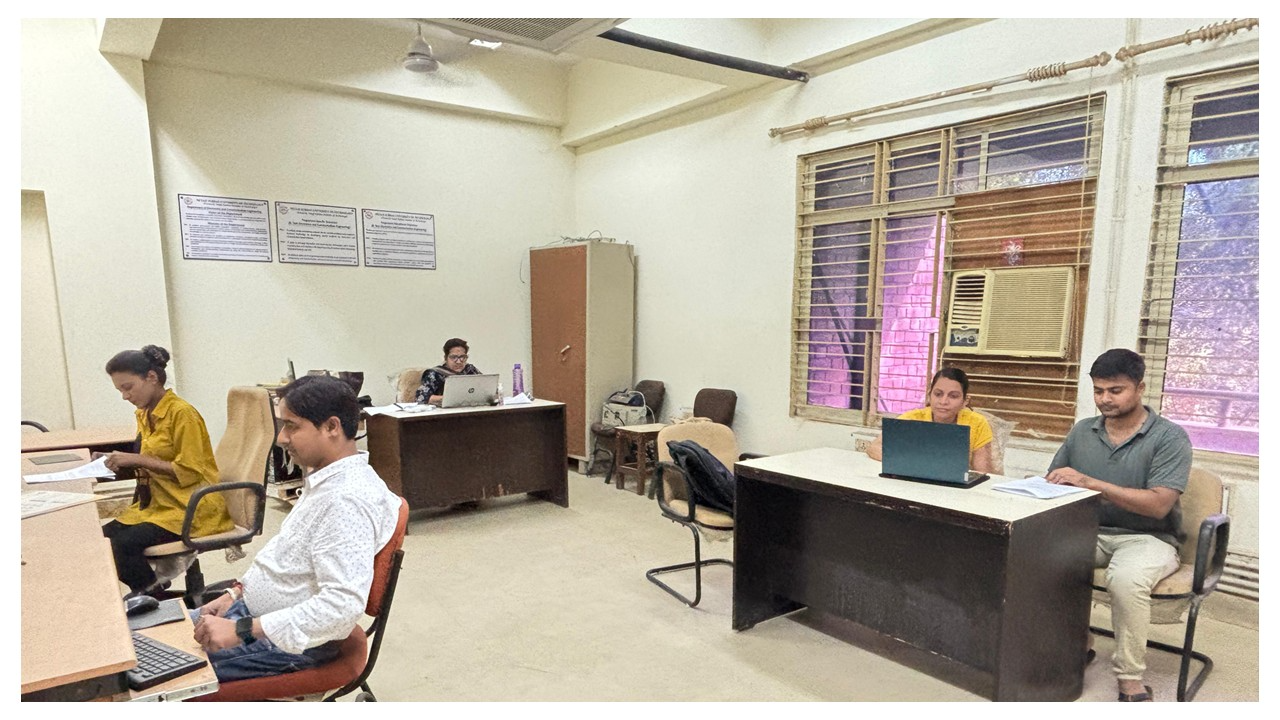
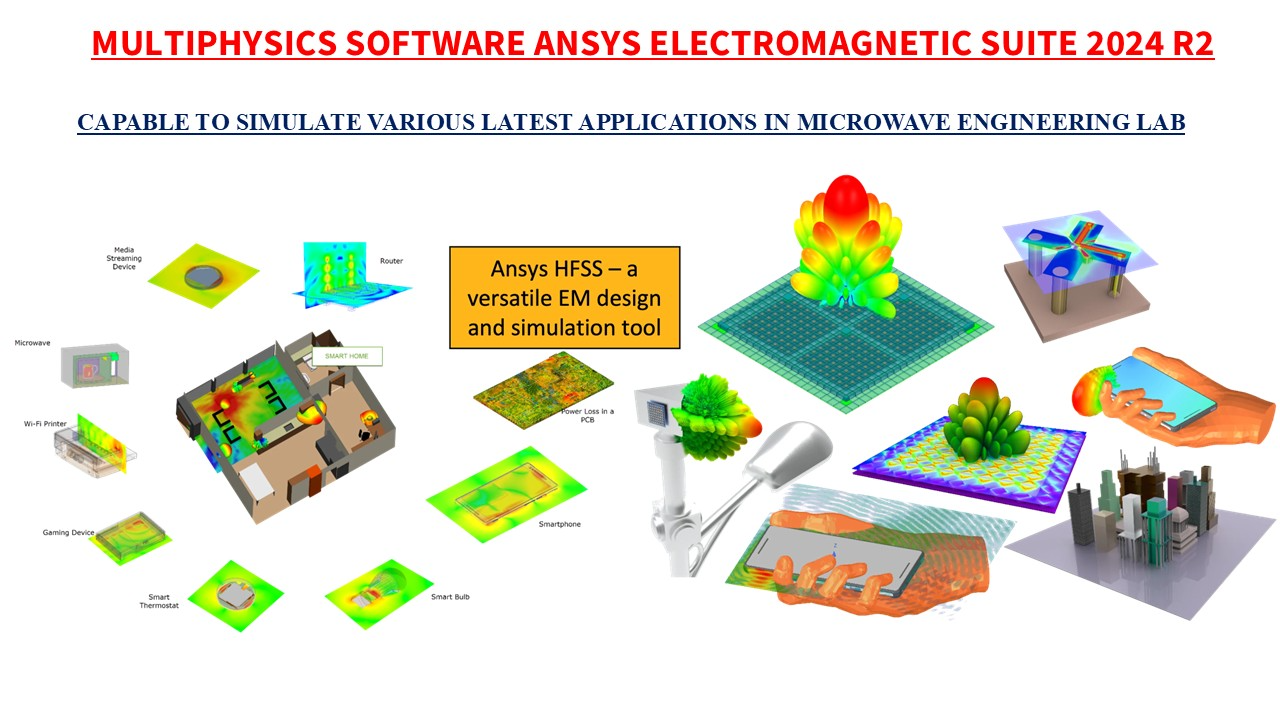
|
|
Telemetry and Computer Communications (TCC) Lab
|
Location:4202
It provides a general computing facility to all the students in the department. It is also equipped to handle MATLAB based experiments, in courses such as Signals and Systems, Digital Signal Processing, Speech and Audio Signal Processing.
|
| |
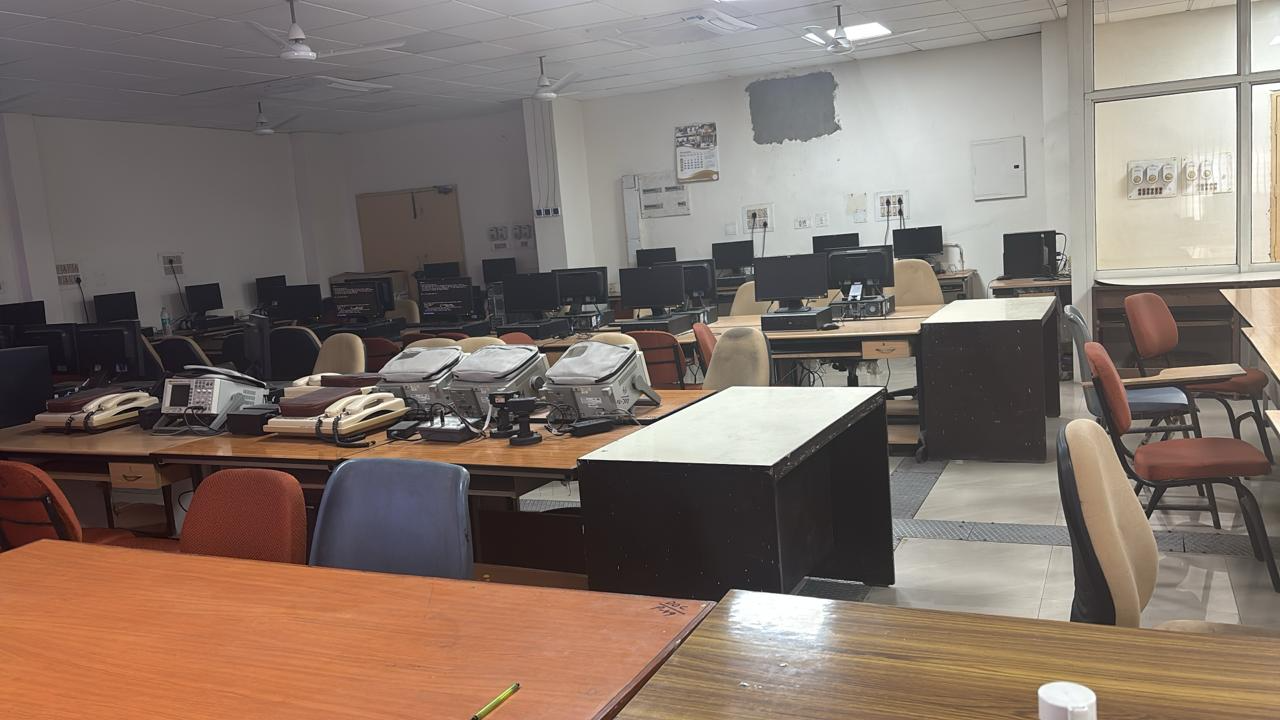

|
|
Digital Signal Processing Lab
|
Location: 4130
The Digital Signal Processing (DSP) Laboratory is a dedicated facility designed to provide students and researchers with hands-on experience in analyzing, processing, and interpreting digital signals. The lab supports a wide range of practical experiments and projects that complement theoretical knowledge in areas such as Digital Signal Processing, Audio and Speech Processing, Video Processing, Image Processing, Biomedical Signal Analysis, and Real-time Signal Processing.
Equipped with industry-standard software tools such as MATLAB, Simulink, Python, and DSP development kits (e.g., Texas Instruments' DSP boards), the lab enables learners to design and simulate complex algorithms, filter designs, and system modeling. Students gain insights into real-world applications of DSP, such as noise reduction, signal compression, and pattern recognition.
The DSP Laboratory plays a vital role in fostering innovation, analytical thinking, and technical skills, preparing students for careers in signal processing, embedded systems, telecommunications, and related fields.
|
|

